MANGA 100




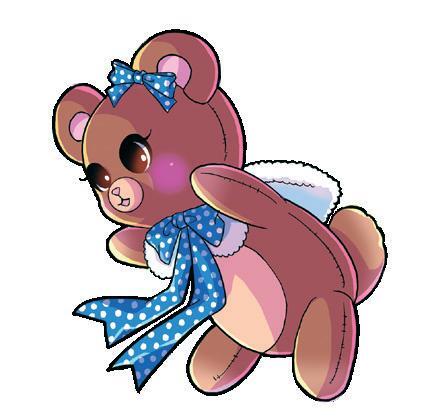


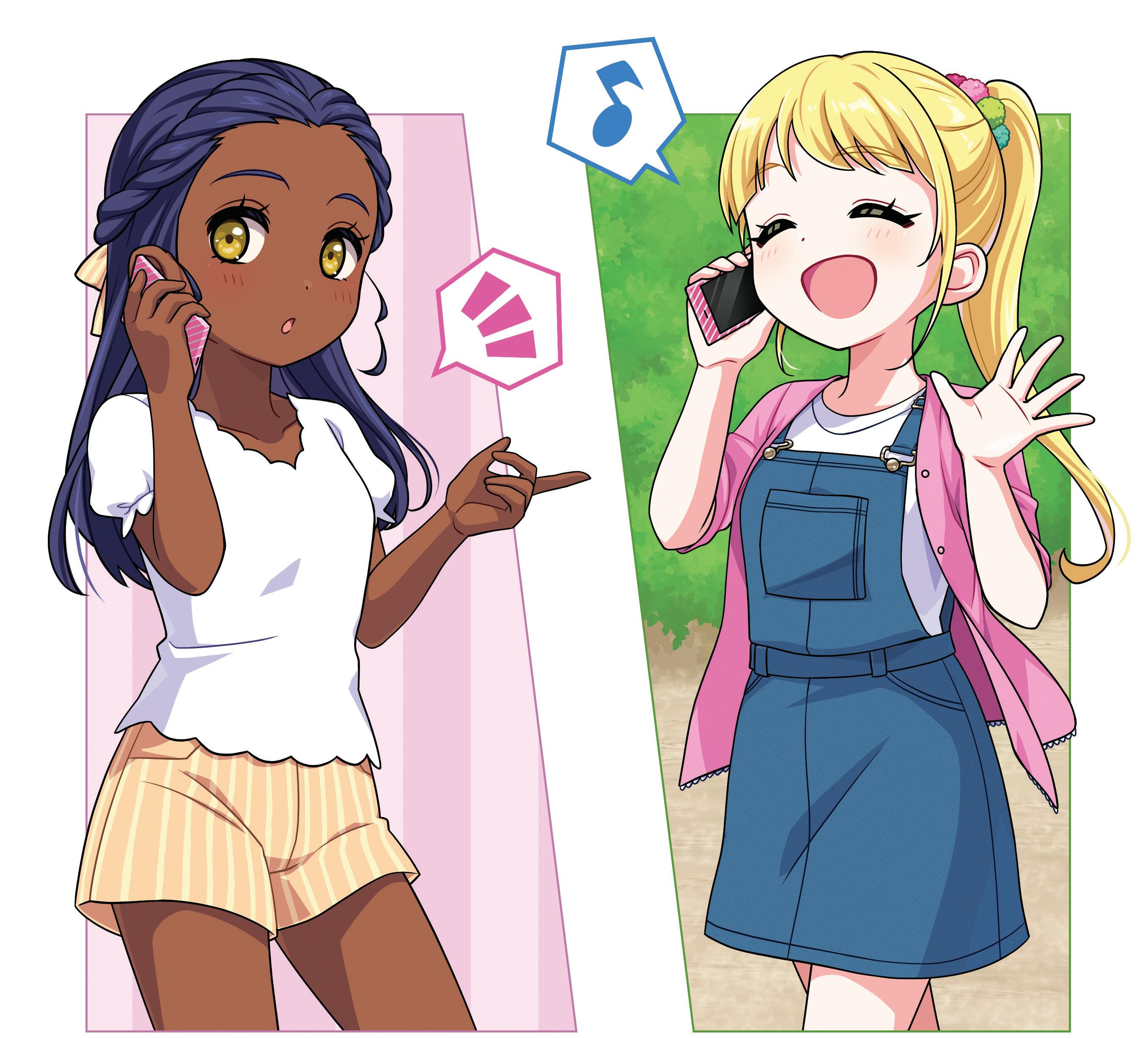

An imprint of Get Creative 6
19 West 21st Street, Suite 601 New York, NY 10010
Sixthandspringbooks.com
Editor
LAURA COOKE
Creative Director
IRENE LEDWITH
Designer
JENNIFER MARKSON
Contributing Artists
@EZURINX
AKANE
AYASAL
HAIYUN
KOU KUBOTA
OUSUKE YOSHITATSU
PH MARCONDES
SHOUU KUN
TABBY CHAN
CHRISTOPHER HART
Chief Executive
CAROLINE KILMER
President
ART JOINNIDES
Chairman
JAY STEIN
Copyright © 2023 by Art Studio, LLC
All rights reserved. No part of this publication may reproduced or used in any form or by any means— graphic, electronic, or mechanical, including photocopying, recording, or information storage-andretrieval systems—without written permission of the publisher. The written instructions, photographs, designs, projects, and patterns are intended for the personal, noncommercial use of the retail purchaser and are under federal copyright laws; they are not to be reproduced in any form for commercial use. Permission is granted to photocopy content for the personal use of the retail purchaser.
Caution: Children should only use child-safe art supplies.
Library of Congress Cataloging-in-Publication Data
Names: Hart, Christopher, 1957- author.
Title: The cute collection : draw your favorite character types from popular genres / Christopher Hart.
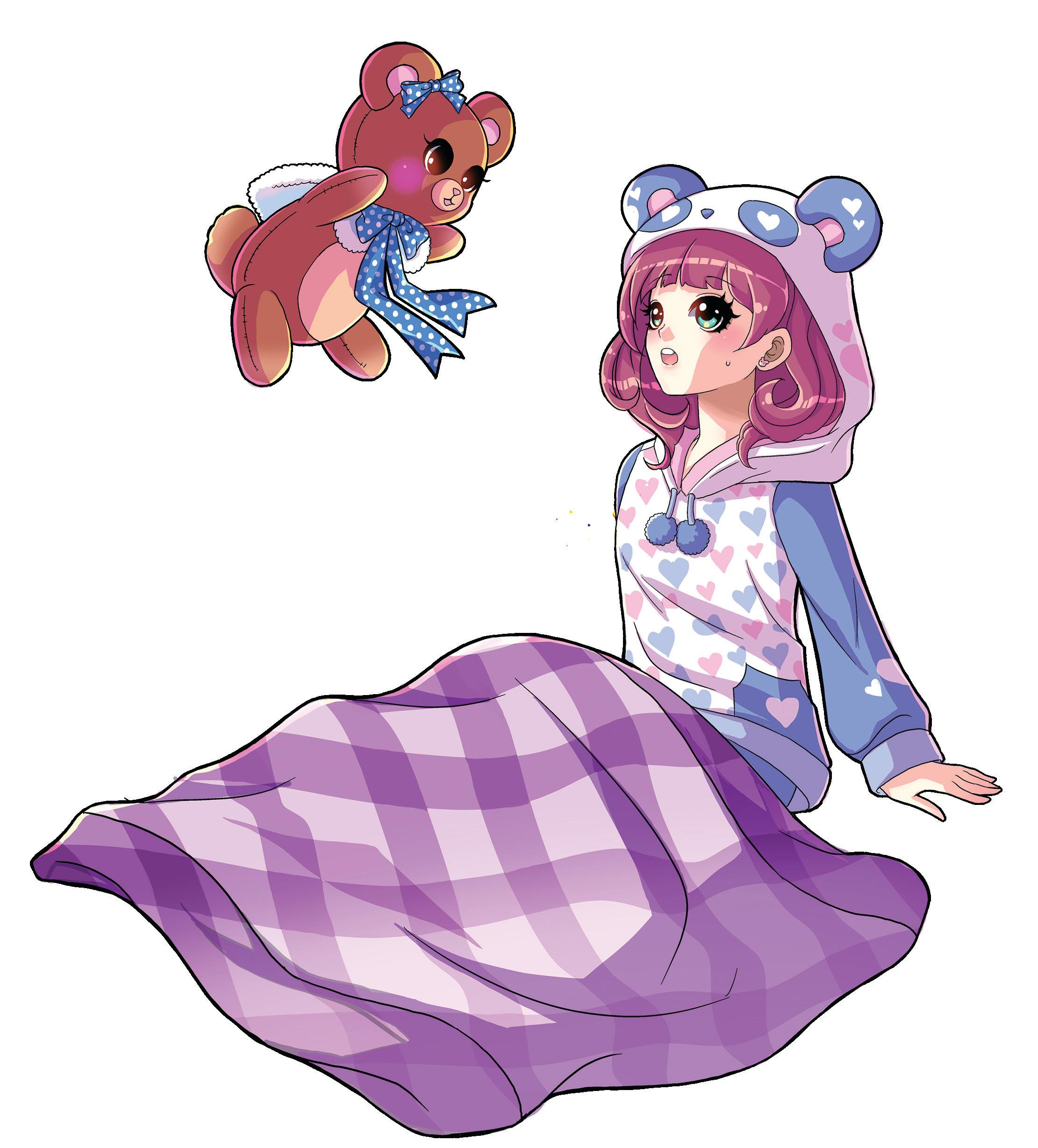
Description: New York, NY : Drawing with Christopher Hart, [2023] | Series: Manga 100 | Includes index. | Audience: Ages 12+
Identifiers: LCCN 2023012815 | ISBN 9781684620678 (paperback)
Subjects: LCSH: Cartooning--Technique. | Comic strip characters--Japan. | Manga (Comic books) | BISAC: ART / Techniques / Cartooning | ART / Techniques / Drawing
Classification: LCC NC1764.5.J3 H369193 2023 | DDC 741.5/1--dc23/eng/20230412
LC record available at https://lccn.loc.gov/2023012815
Manufactured in China
1 3 5 7 9 10 8 6 4 2
christopherhartbooks.com
facebook.com/CARTOONS.MANGA youtube.com/user/chrishartbooks
Dedicated to my dog, Spencer, who would be the best manga artist ever, if he only had opposable thumbs
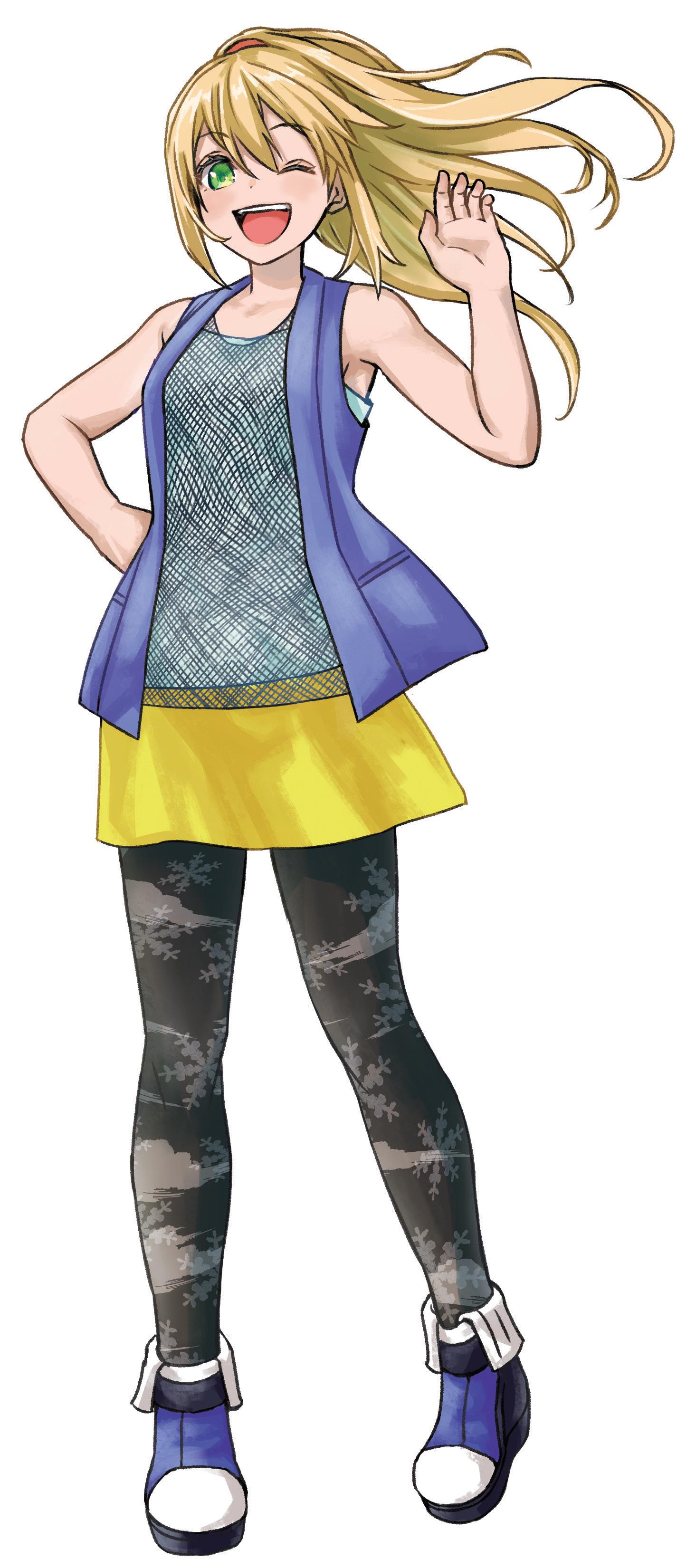

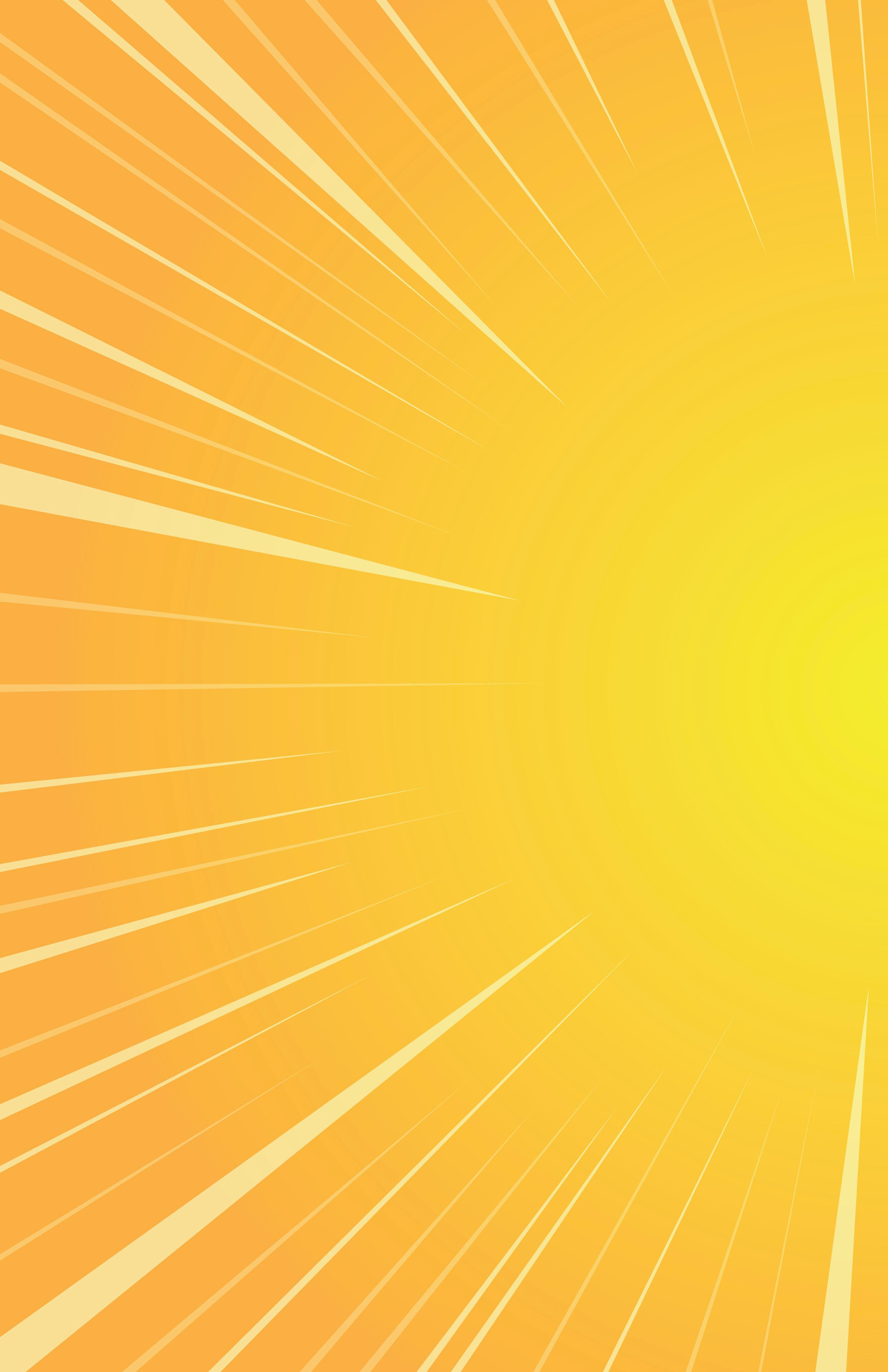
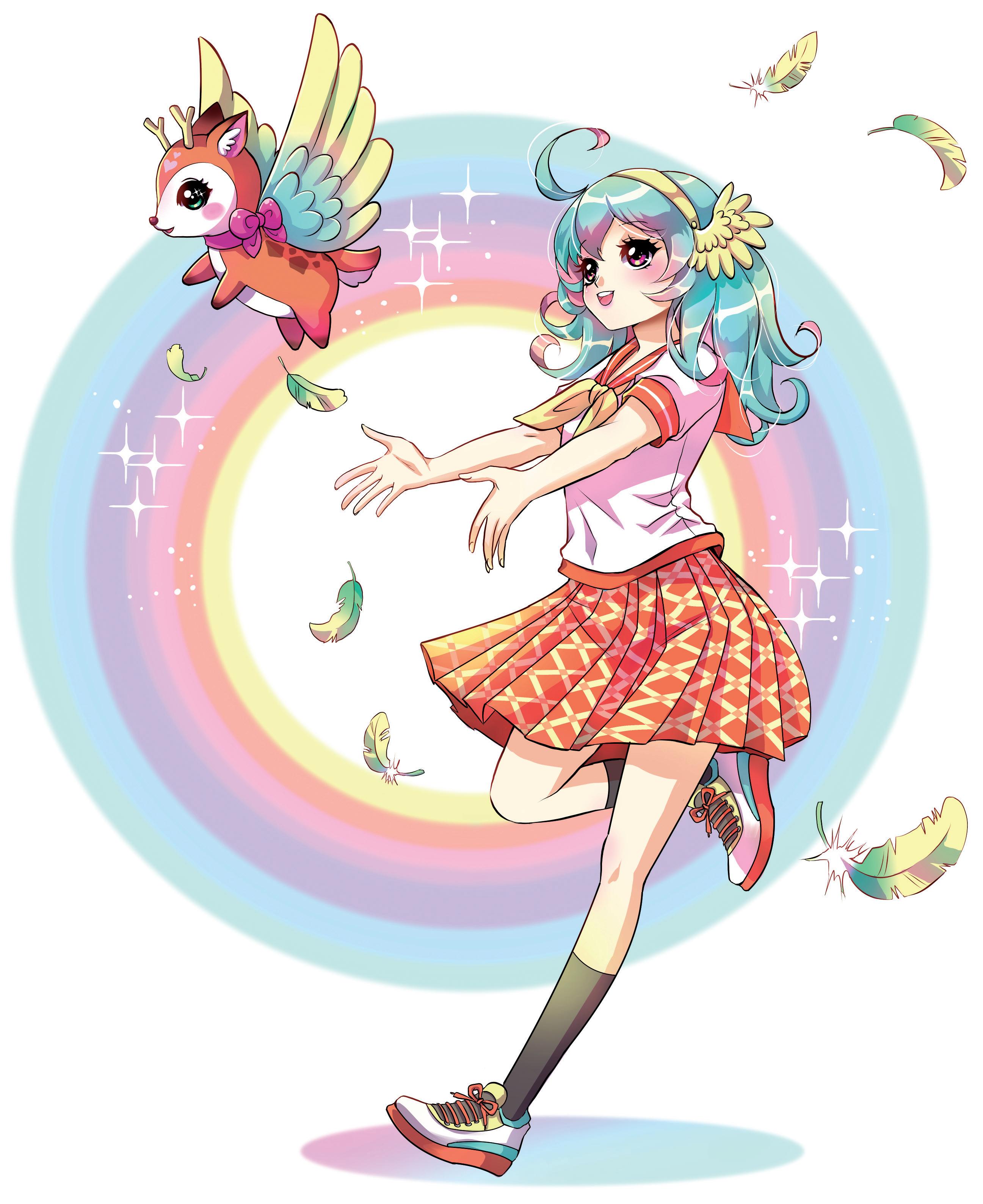
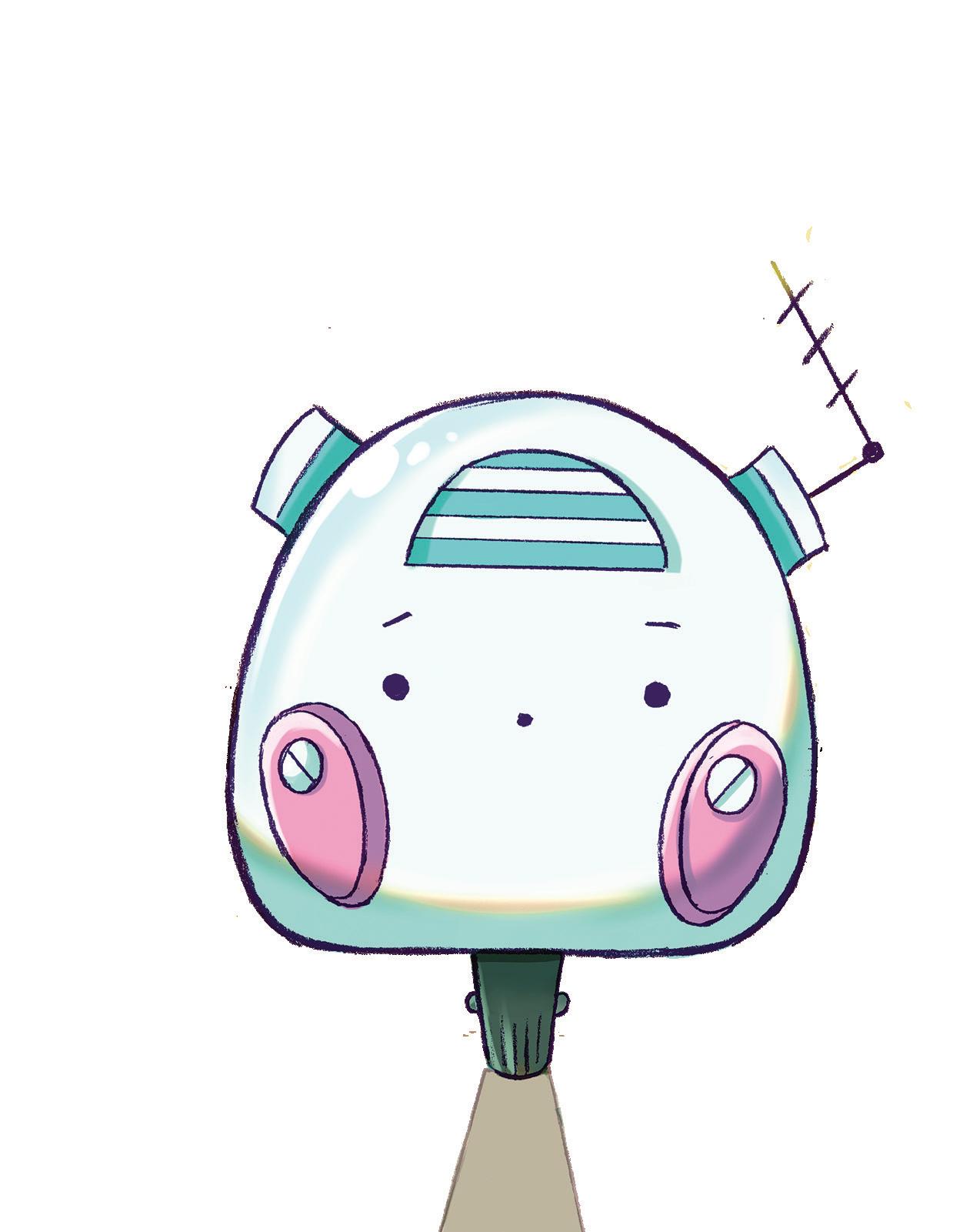


This book is chock-full of easy-tofollow tutorials for drawing the cutest character types in manga. In this book, we’ll cover every aspect of cuteness, including teenagers, funny characters, magical beings, brave types, and even pets of the future—a novel character type from Japan. You’ll also learn techniques for drawing cute and trendy outfits, which can make your characters eye-catching. By using the simple drawing techniques in this book, you’ll be able to put together an impressive array of characters and learn how to draw your own original creations, too. Whether you’re just starting out or you have some experience in art, this book offers practical advice for drawing manga. So let’s get cute, and let’s get started!
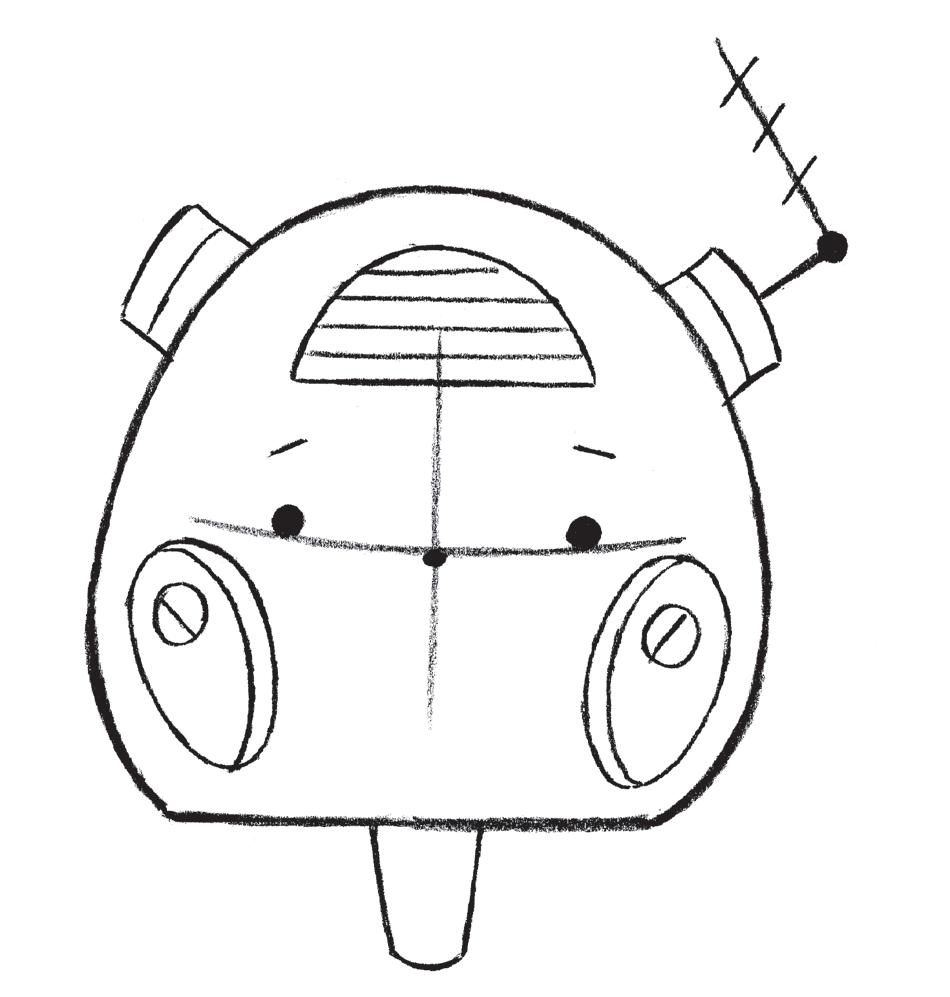
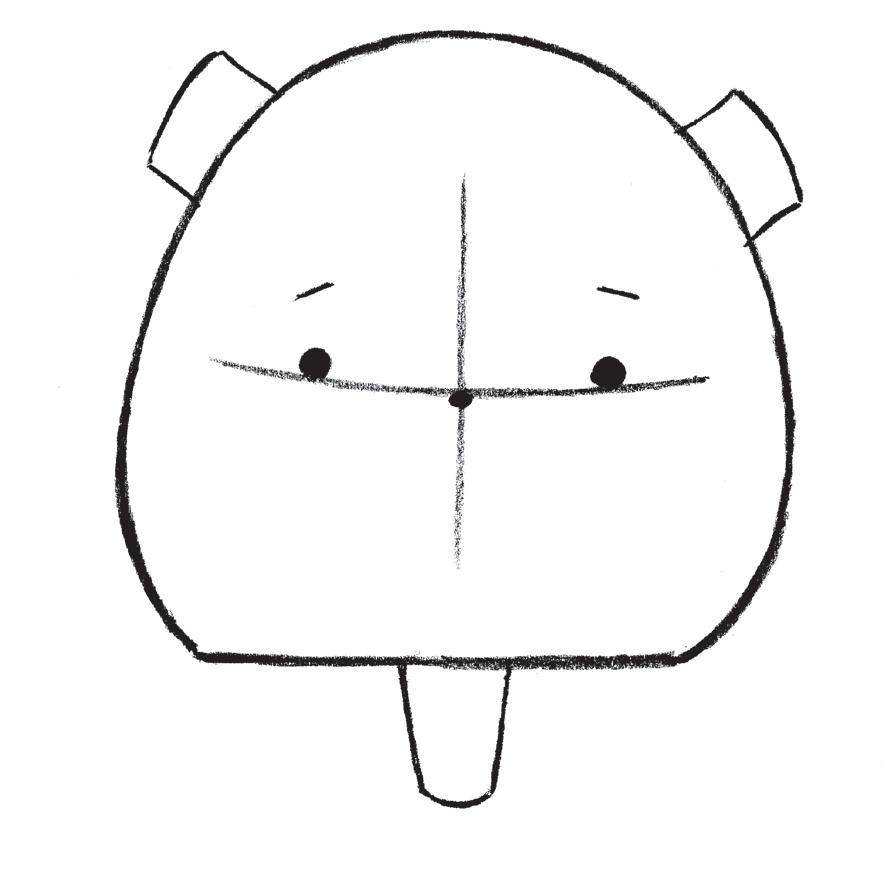

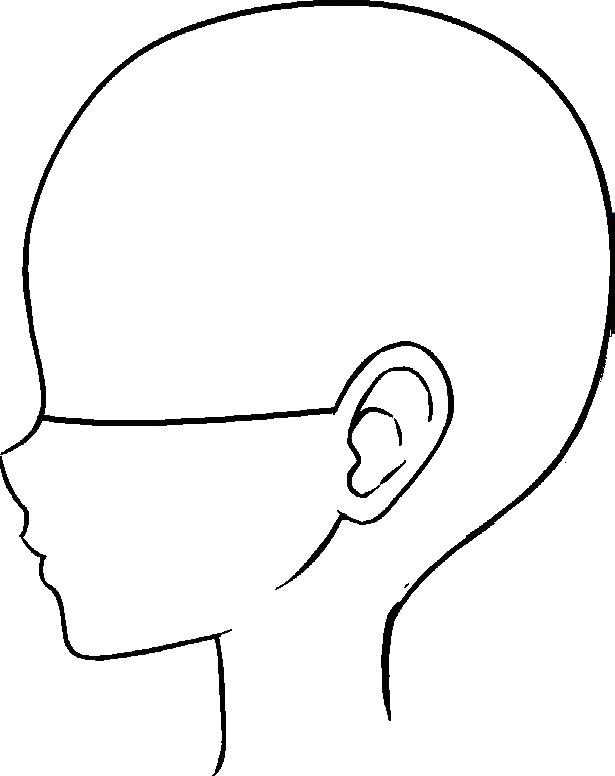
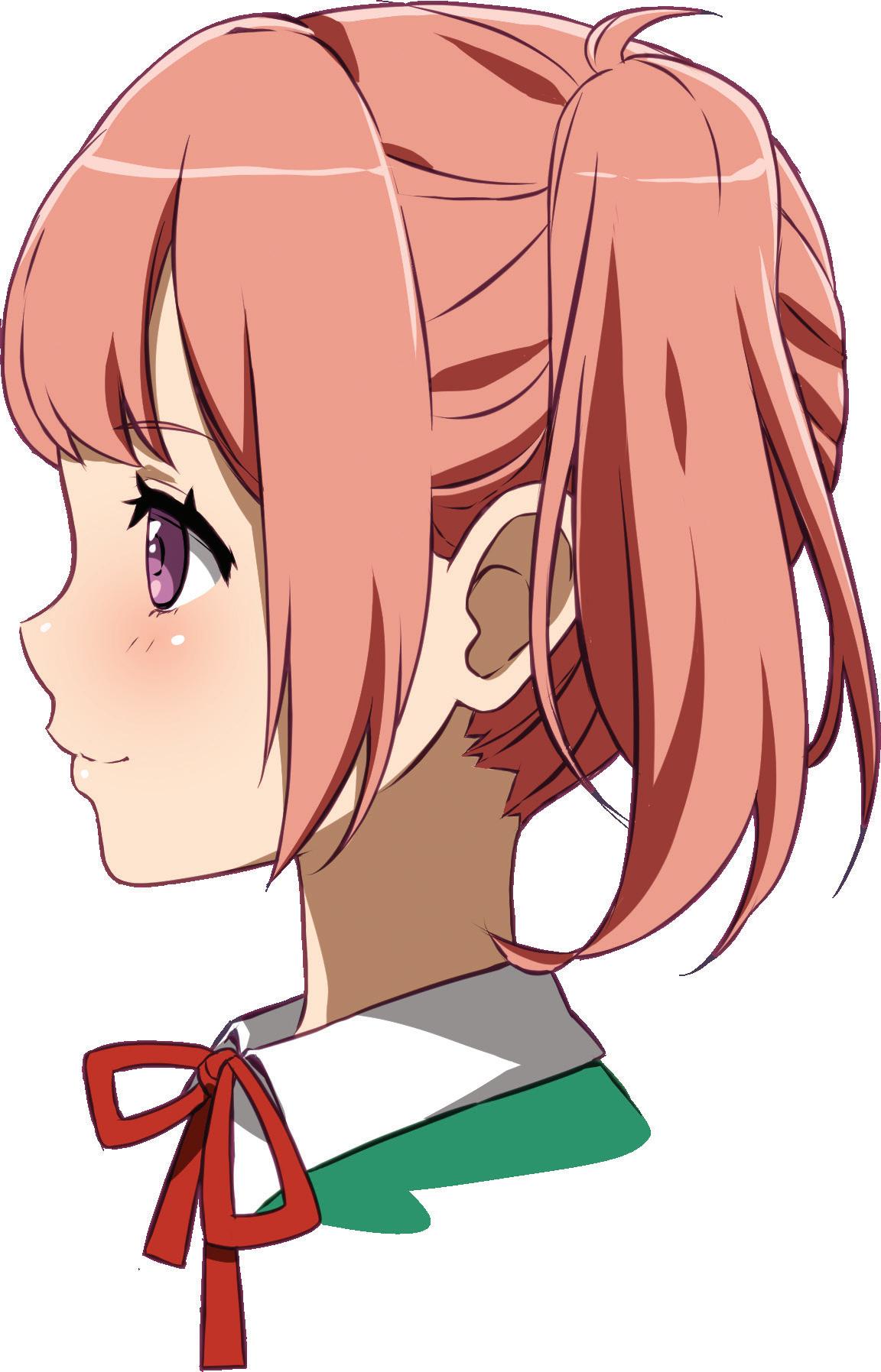
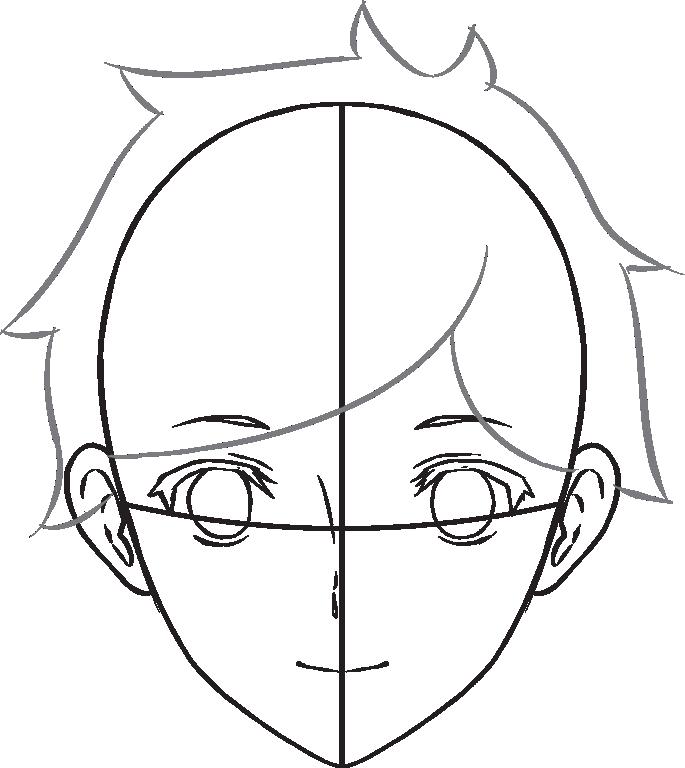

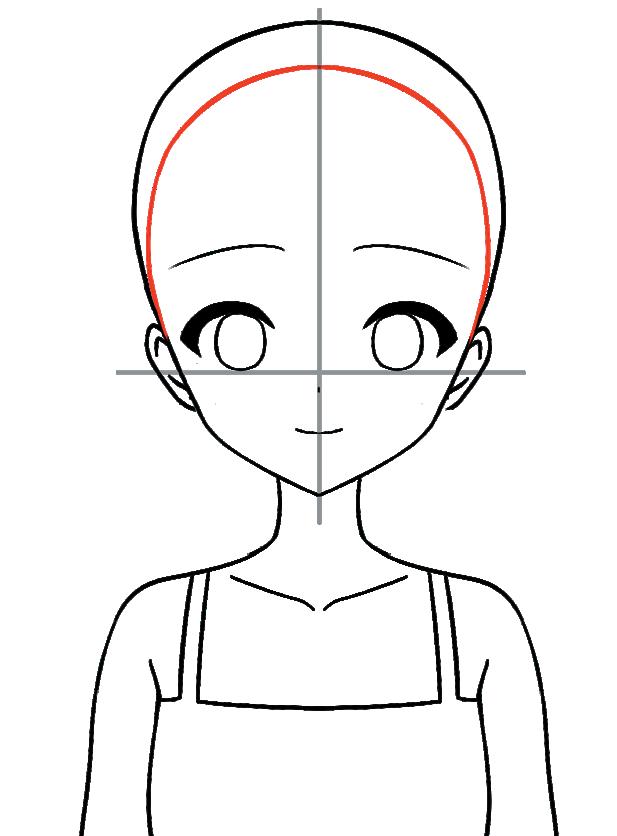
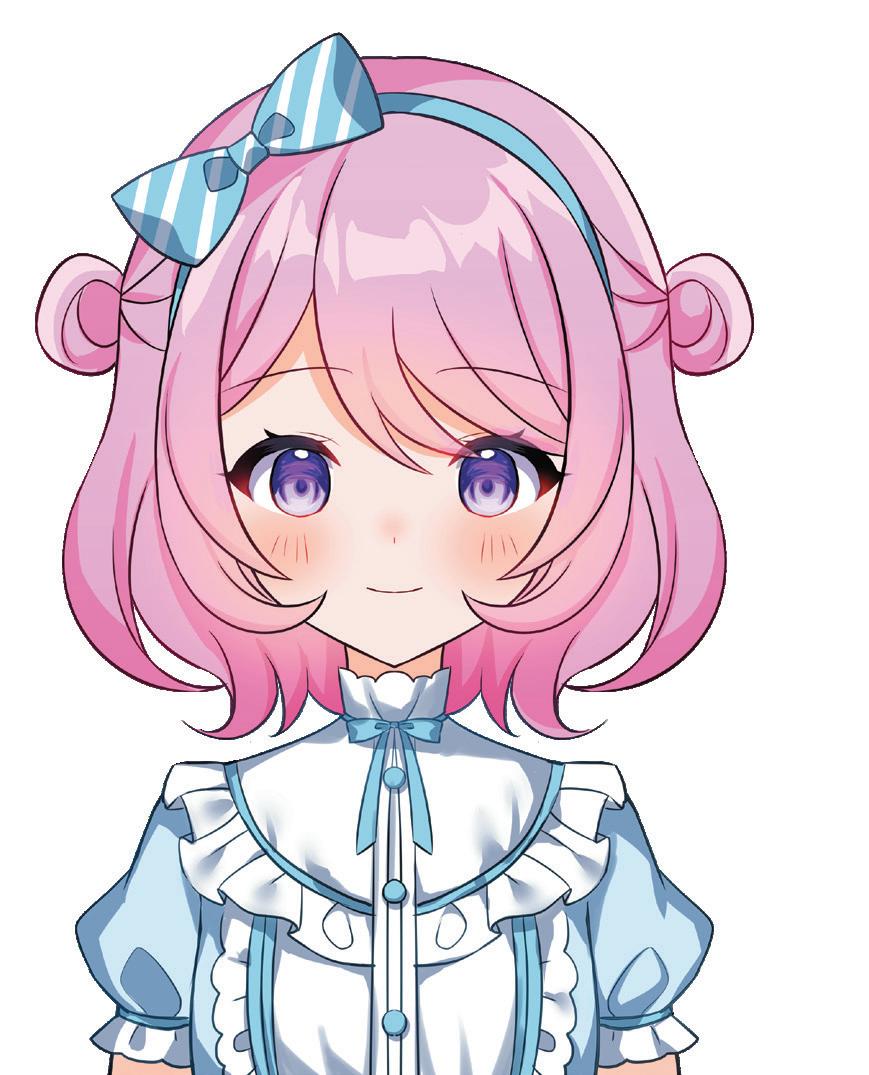
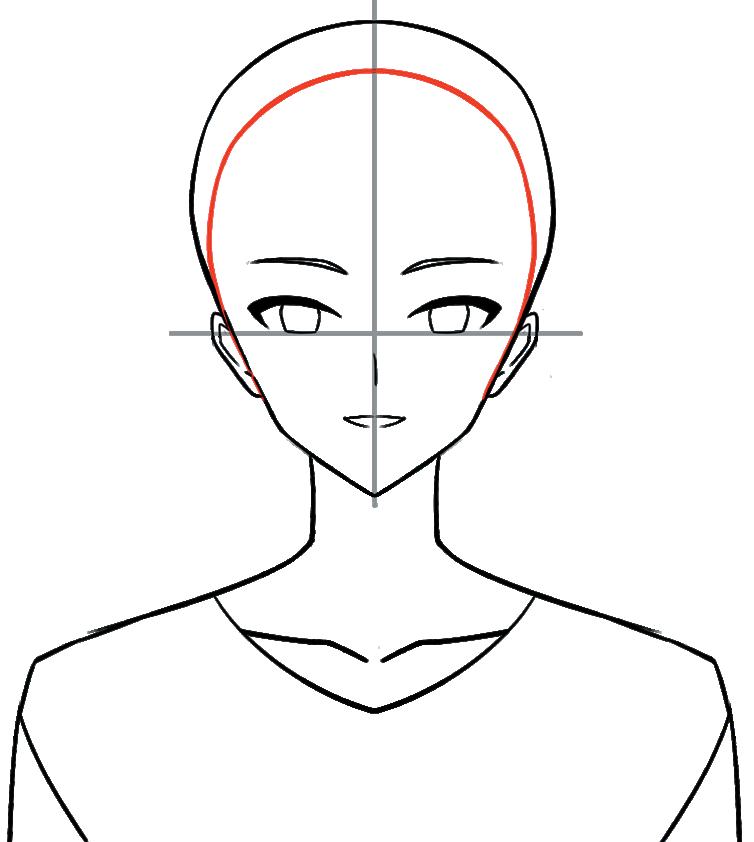
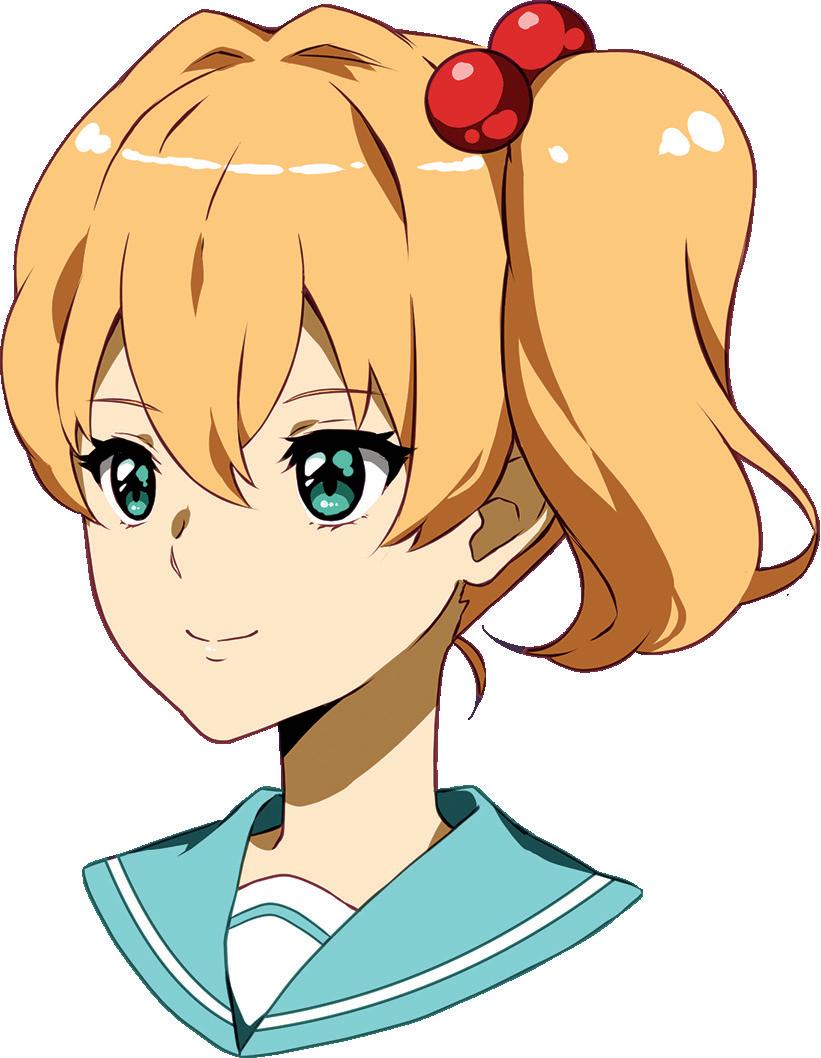



Many beginning artists learn to draw the head by using basic shapes and guidelines. But there’s more to drawing manga characters than that. In this opening chapter, you’ll get tips that are easy to use, and that can also propel your drawings to the next level. I’m talking about essential proportions and contours. And these can be customized to your character type. Best of all, by using these techniques, you can avoid making common mistakes. Let’s try them out.

Number three on the list of cute manga hairstyles is braids. Drawing braids doesn’t have to be complicated.Here’s how to do it: Taper the braids so they appear widest at the shoulders and narrowest where they fall to the arms.



Draw tips of hair on both sides of the head.
A combination of a soft, round face and a pointed chin creates a cute look.
The braids begin at shoulder level. This means you have shorter braids to draw, while still achieving the same effect of longer braids.
The braids curve away from the shoulders so they don’t crowd the image.

That famous manga hair shine can also be drawn as an uneven line across the top of the forehead.

Number two on the all-time list of must-know haircuts is the everversatile shoulder-length haircut. All it takes is a simple cut with a ruffle along the bottom. You can give it a part on either side or straight down the middle.
This is a slightly introverted haircut. Let’s show that by giving our character a modest expression.



Choppy pieces run across the bangs and are repeated across the shoulders.
This style is neat and tidy.
When you begin with the outline of the head, instead of starting with the hair, all styles are possible.
That famous manga hair shine can also be drawn as a ring around the top of the head.

The side strands are short, ending just above the mouth.
The hair ends in a blunt line behind the neck.
The shine indicates a light source overhead, like a ceiling light.









These ten cute-character types are fan favorites. With these tutorials, you won’t have to draw plain faces anymore. Now, you can learn how to infuse your drawings with personality. It only takes three ingredients: the head shape, the eyes, and the hairstyle. Adding cute-character appeal is a skill, and important for any manga artist. You can apply these techniques to your own original characters.


The protective type keeps an eye out to make sure everything is okay. His instincts are honed and his reflexes are quick. He may be in the background, but he’s always watching and can leap into action at any time.
The ¾ view begins with a center line, which indicates that the head is facing left.

Flatten the eyelids.
Draw a sleek and angular jawline.


GOOD TO KNOW!
When drawing a sideeye glance, don’t move the head, just move the eyes.


Draw a sideways glance to show that he’s thinking.
A firmly constructed jacket makes the shoulders look wide.
Draw a center part that starts at the top of the forehead, and let both sides of the hair flop forward.
This guy has a million funny things to say. He keeps the story engaging with his kooky style of humor. With those uneven eyebrows, he’s cute and funny to look at.

Draw one eyebrow up and the other down.
There’s nothing subtle about this character type.
Bring up the collar behind his neck. (Even a prankster deserves some style. But very little.)

Leave the smile empty. It will read as teeth in the next step.
The closed eye curves upward.

Draw a crazy hairdo fanning out in all directions.
Draw a line across the mouth to create two rows of teeth. (You can also add a slight shadow inside of the mouth, at both ends.)

He’ll probably end up being a neuroscientist or a stand-up comic. Hopefully not both at the same time.








One of the creative challenges for a manga artist is to draw expressions that readers can relate to. Sometimes an emotion is obvious, like when someone is happy. But it can also be subtler, such as when a deceptive character says something sweet but is actually scheming. This section will give you ideas, steps, and examples for creating engaging characters with something on their minds. You’ll also notice that the upper body in this chapter’s tutorials is outlined in blue. This is a helpful reminder, demonstrating that the body, as well as the face, expresses attitudes.



Most people don’t realize how tall the body is. Stand next to a car or a dog and you’ll realize that we humans are quite long! Therefore, it’s important to establish a few basic proportions to keep the figure looking correct. These proportions are simple guidelines that are easy to follow. They can help you to keep your characters consistent an any angle.
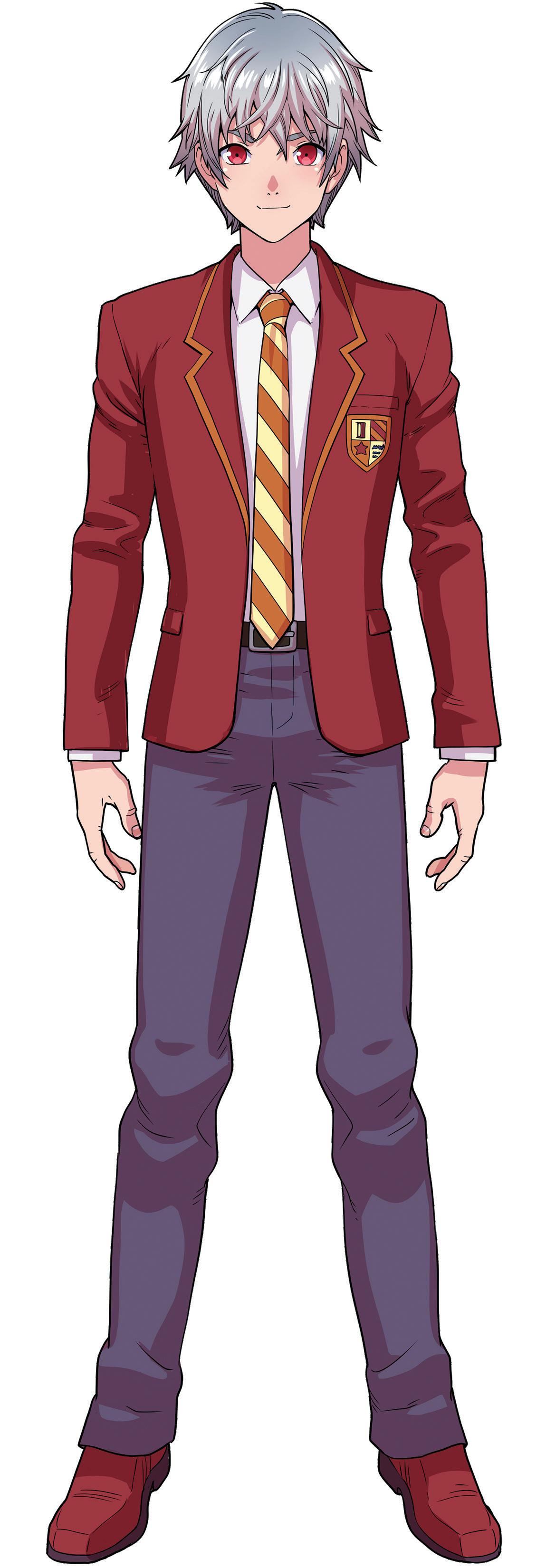


Popular manga types, such as high school teens, have proportions quite similar to real human proportions, which makes them easy to learn. Because manga is a highly stylized art form, manga artists will sometimes adjust the proportions to create a unique look. For example, a character may have slightly longer legs or a shorter upper body. But generally, you and manga characters have a lot in common. Let’s check out how to draw them.

The collarbones dip below the chin.
The flexible part of the upper body only occurs in that small area between the bottom of the ribcage and the top of the hips, which is the midsection.
The shoulders are as wide as the hips.
The outer line of each leg dips at the knee.


Where else but in a graphic novel can you find a friendly sword fighter? Maybe at a manga convention, but that’s about it. His stance is relaxed but ready. His little friend is cute but annoying, like most mascots. The boy’s hair flips—a typical hairdo for an action character. The costume is flashy but must not restrict his movements, so keep it loose.
Here are the key ingredients of a dynamic stance:
• He turns his head to look over his shoulder.
• Hands are held out in front.
• Spine is curved.
• Hips push forward.
The sword’s grip extends beyond the hands.
Leave space between the two forearms, for clarity.
Build up the shoulder, for dramatic effect.
The legs are rounded, including the lower legs.

Bring the near leg and foot toward the reader and elongate it due to the effect of perspective.

The top forearm guard appears compressed, which is a visual effect caused perspective.

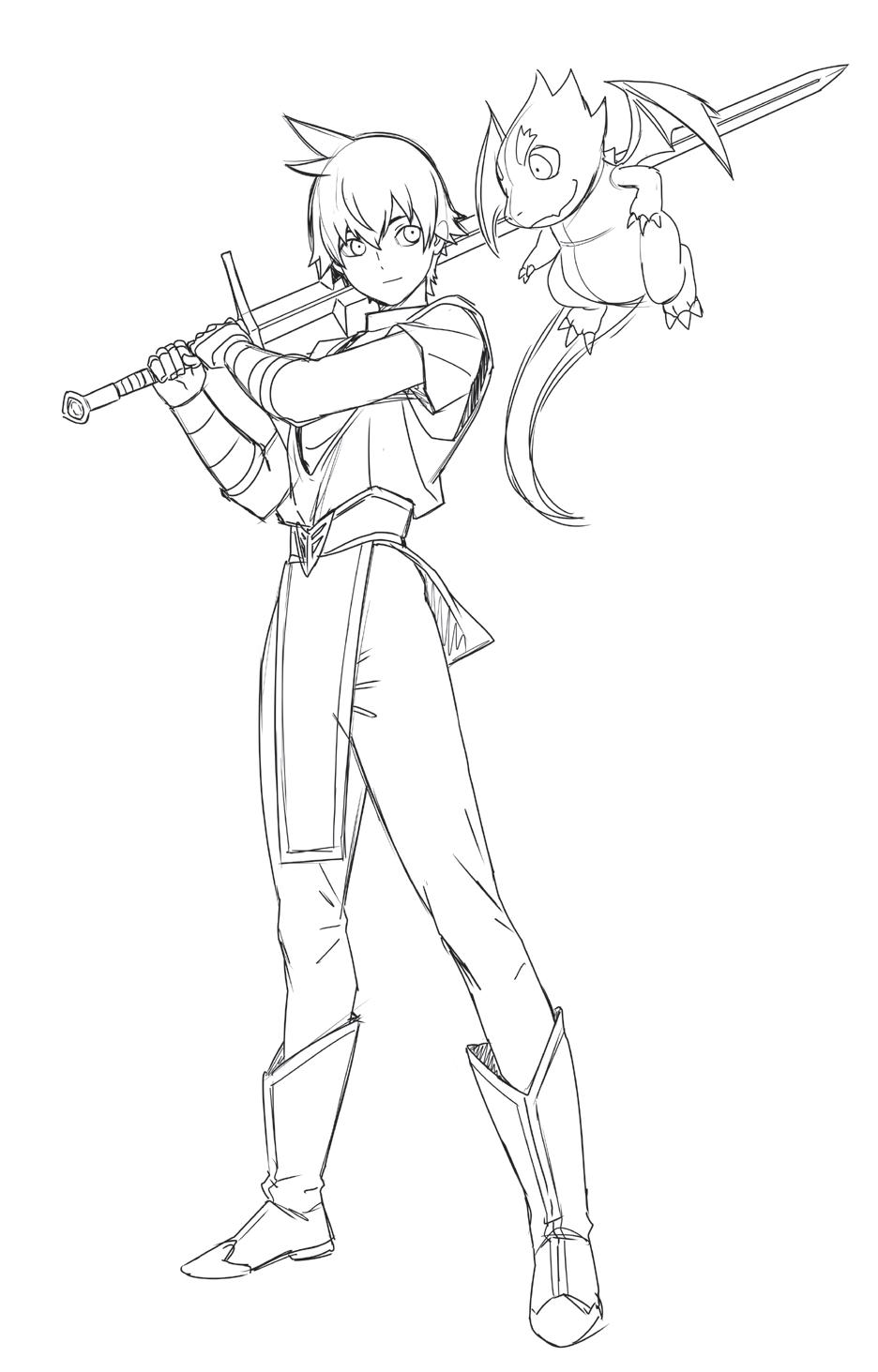

The belt causes the fabric above it to flair out.
Can you tell what makes these two appear to be friends? It’s that they’re positioned close together, and they make eye contact with each other. And there’s one more thing: Who wouldn’t like a cute little green guy like that?






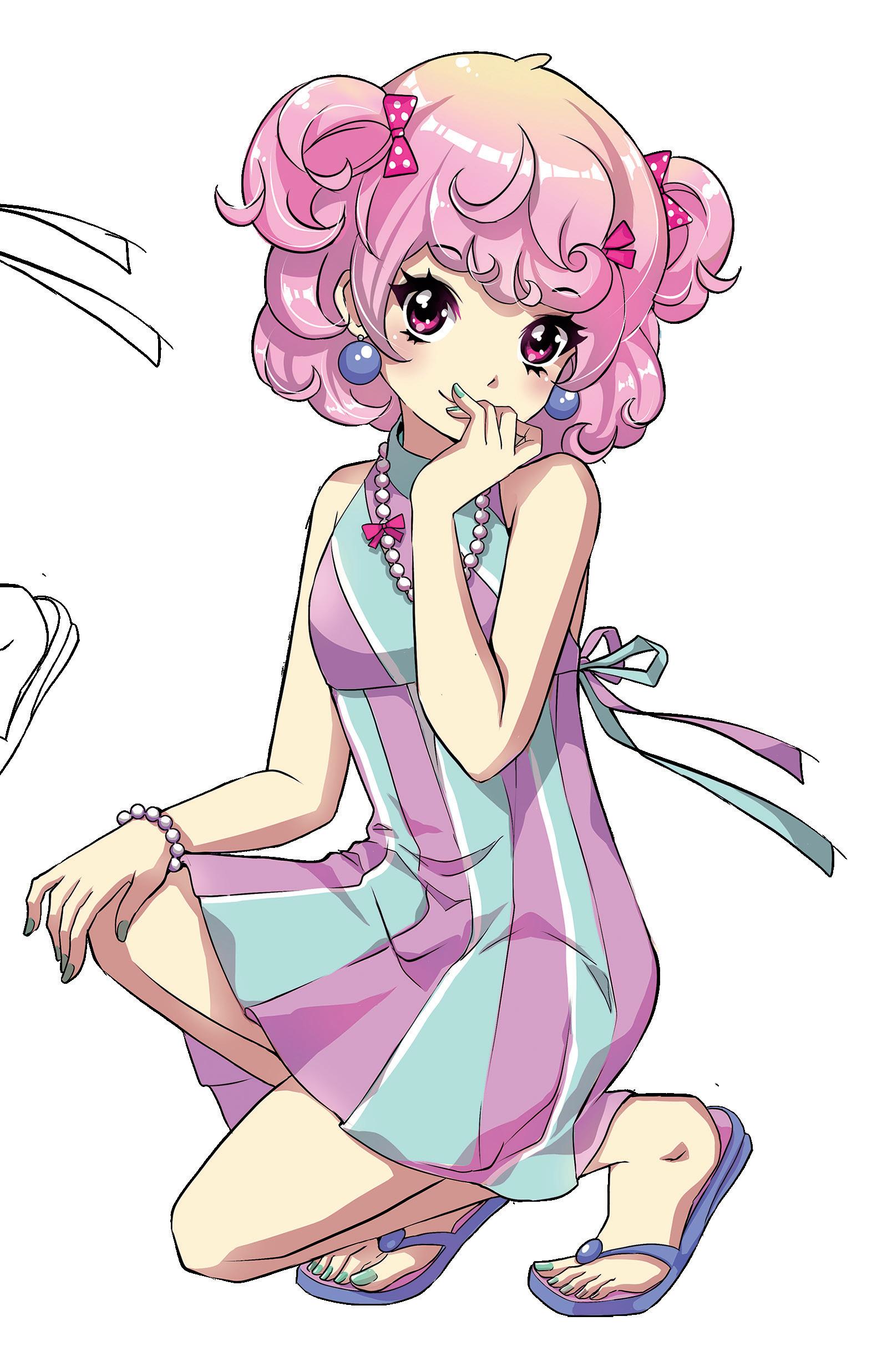
Cute characters have that extra “something”—that extra personality and appeal. But it’s not only their expressions that look cute, but their poses, too. Are there really techniques that can make a character’s pose look cute? Absolutely! And here are a few basic hints to get you started!


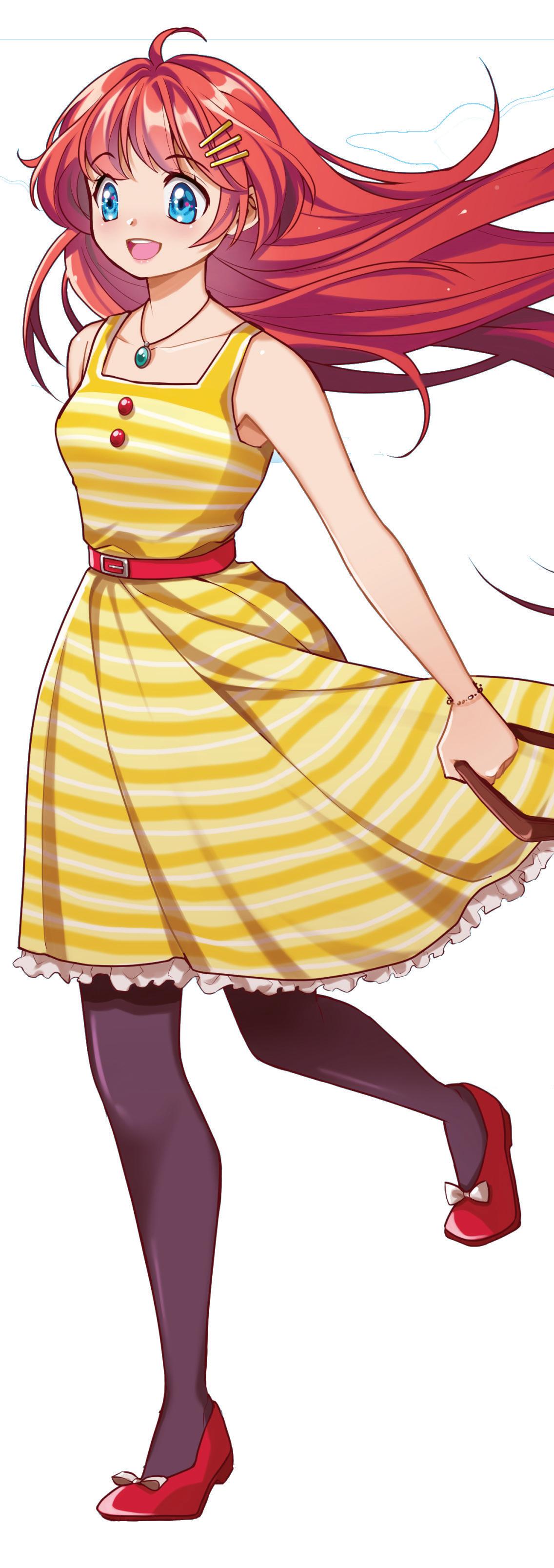
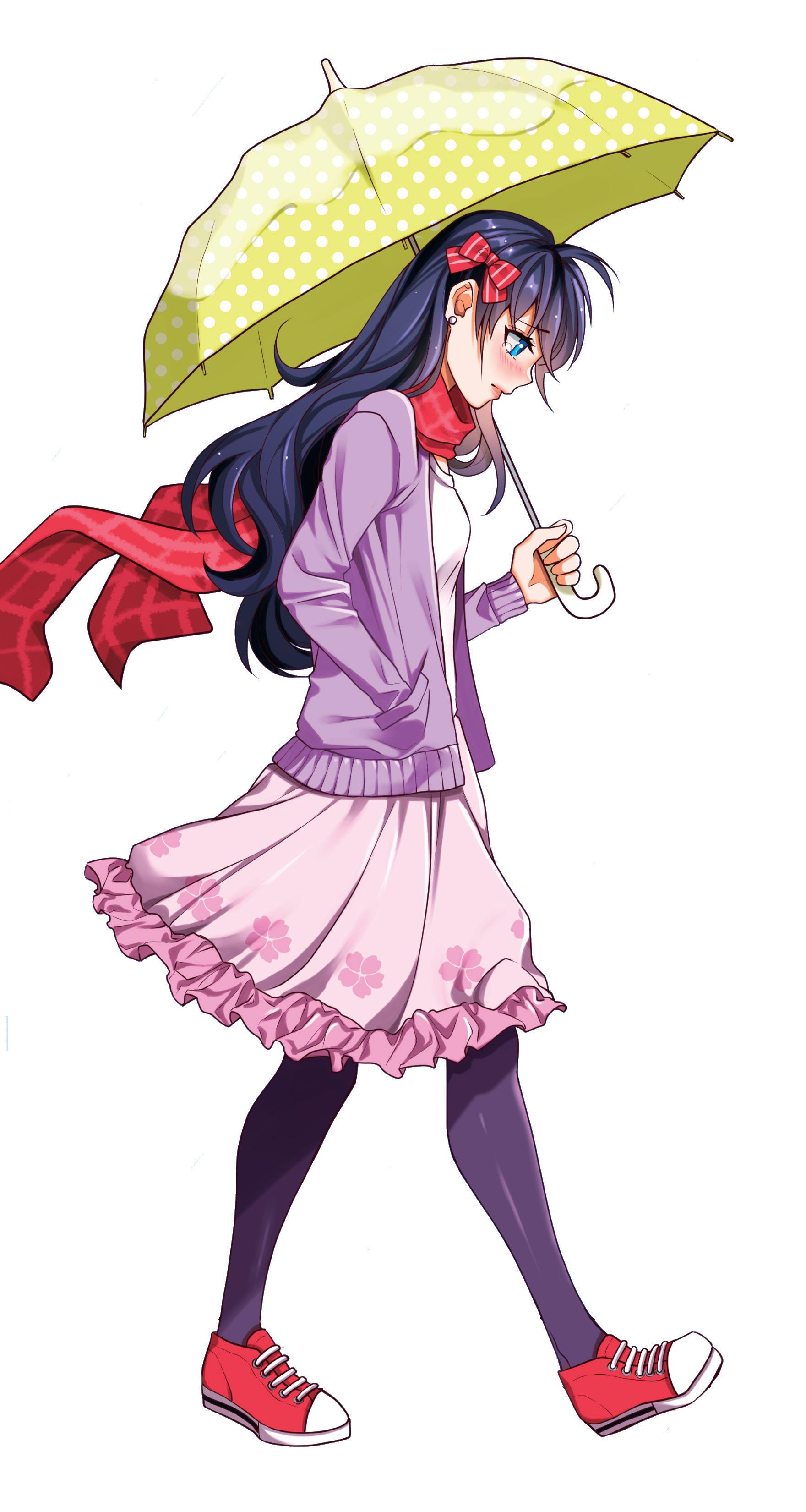
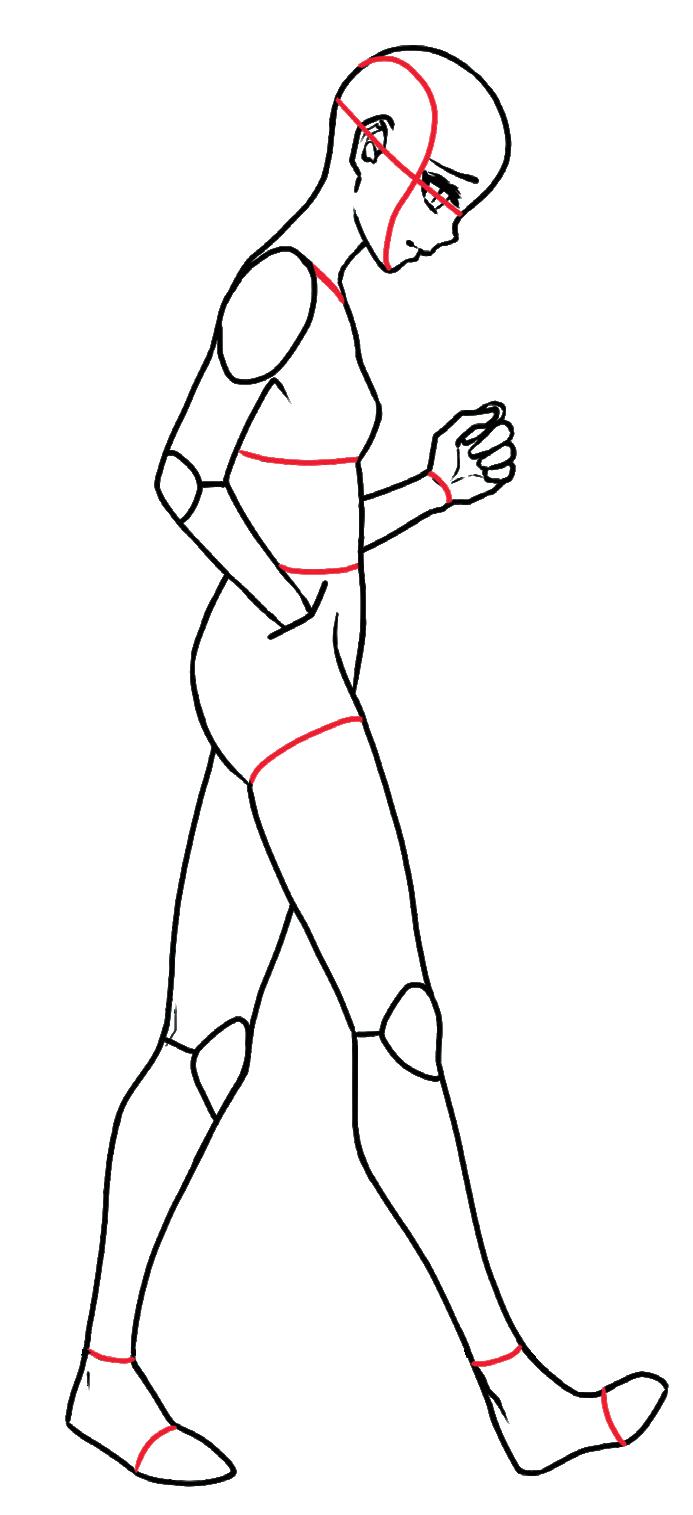


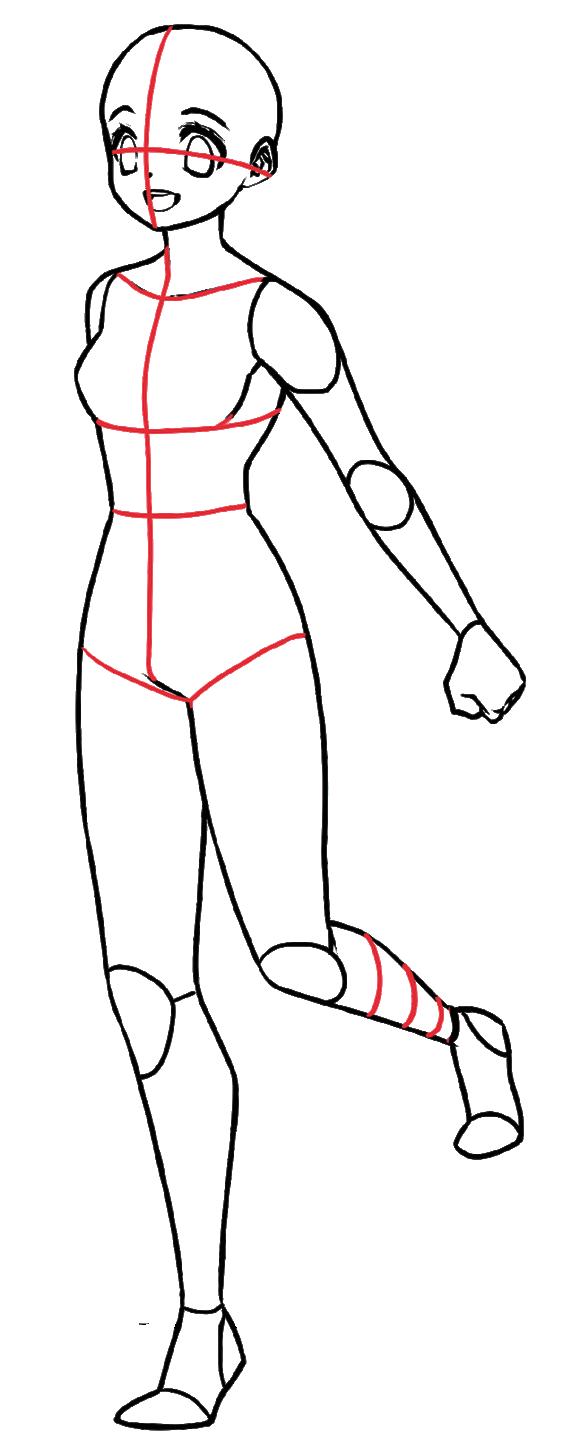

In art, the term deconstructing means looking at an image and figuring out how it’s done. You’d be surprised how many people overlook this simple step. Not everybody walks or runs the same way, but they do have certain things in common. And that’s what we want to pick up on. These common traits signal to the viewer what the character is doing. The way a character walks or runs can indicate a personality type.



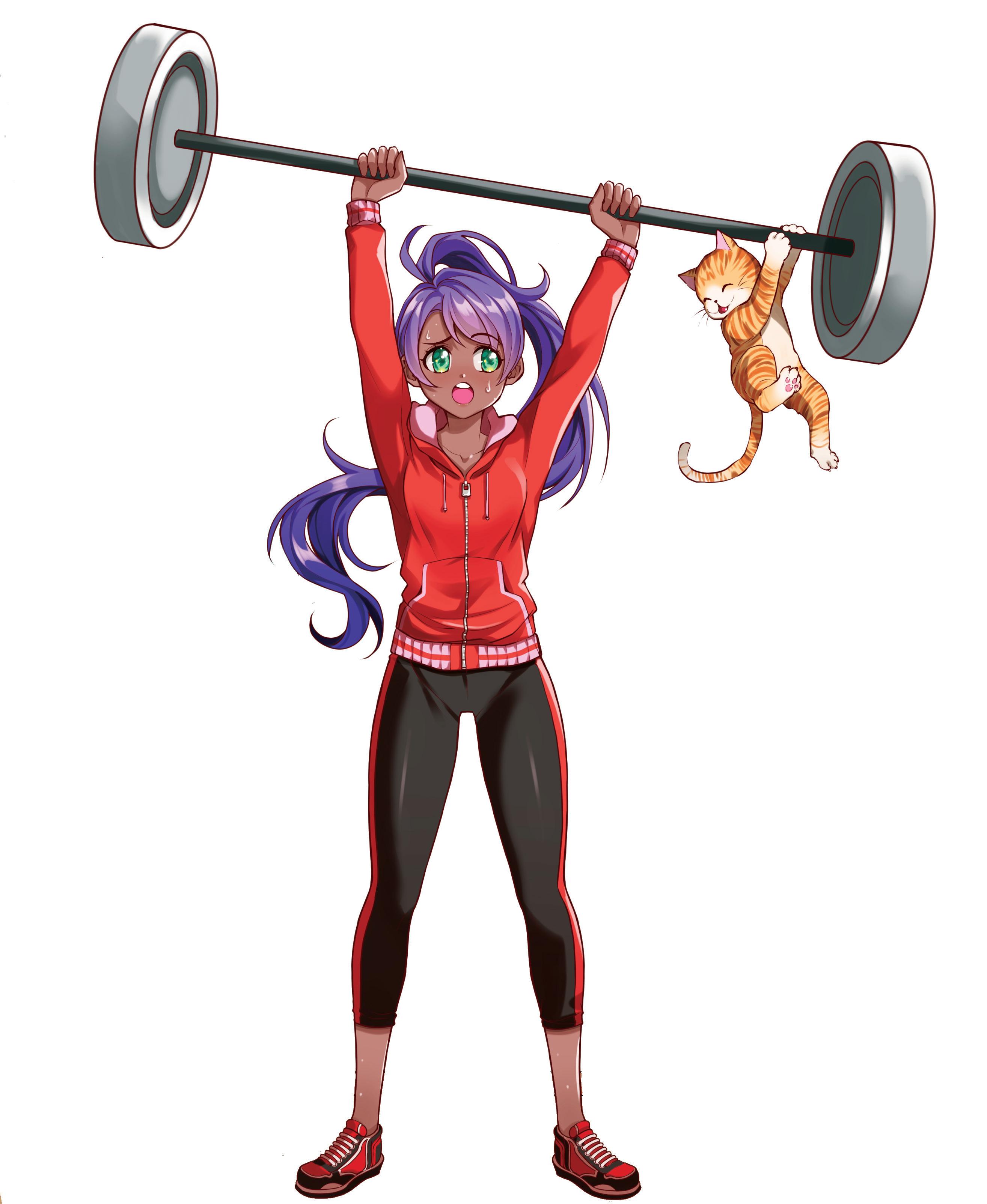


Now we’ll move past basic poses to those that show manga characters reacting to things in their world. These are called situational poses. You see them when you read graphic novels or when you watch anime. Each pose is about something. A story or an emotion is implied. Anyone who has wanted to convey an idea with a picture will get valuable tips from this chapter.
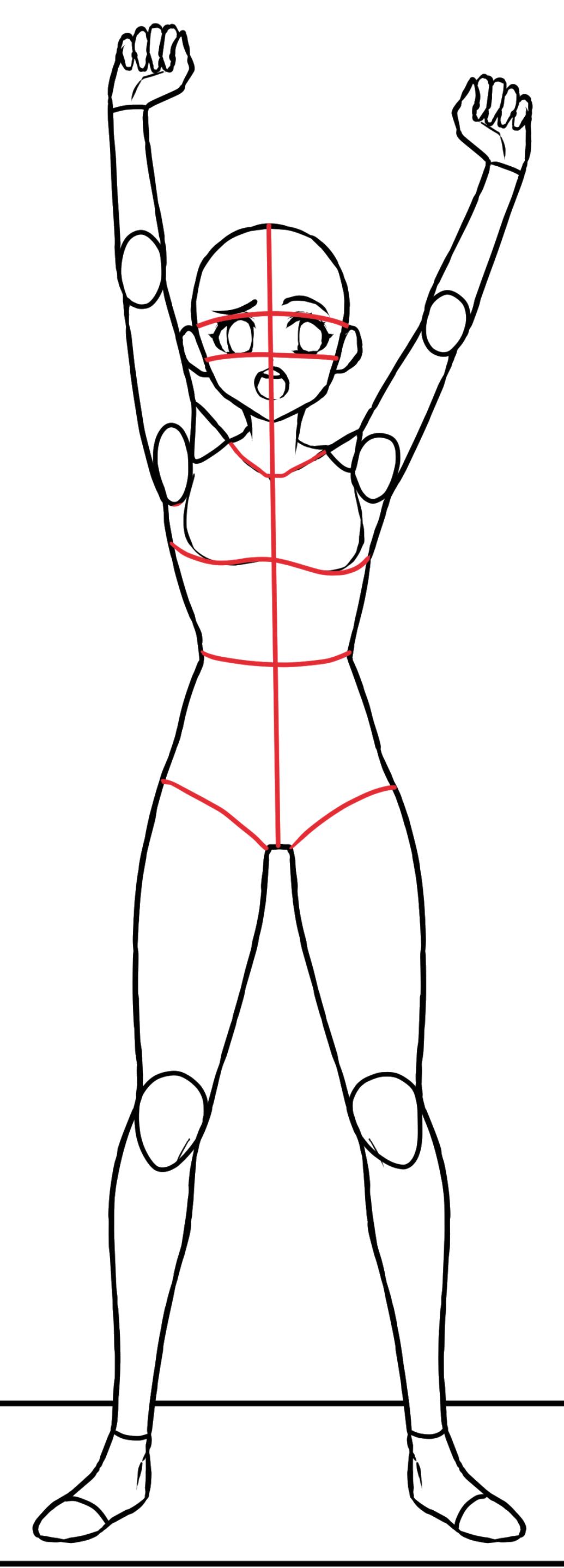


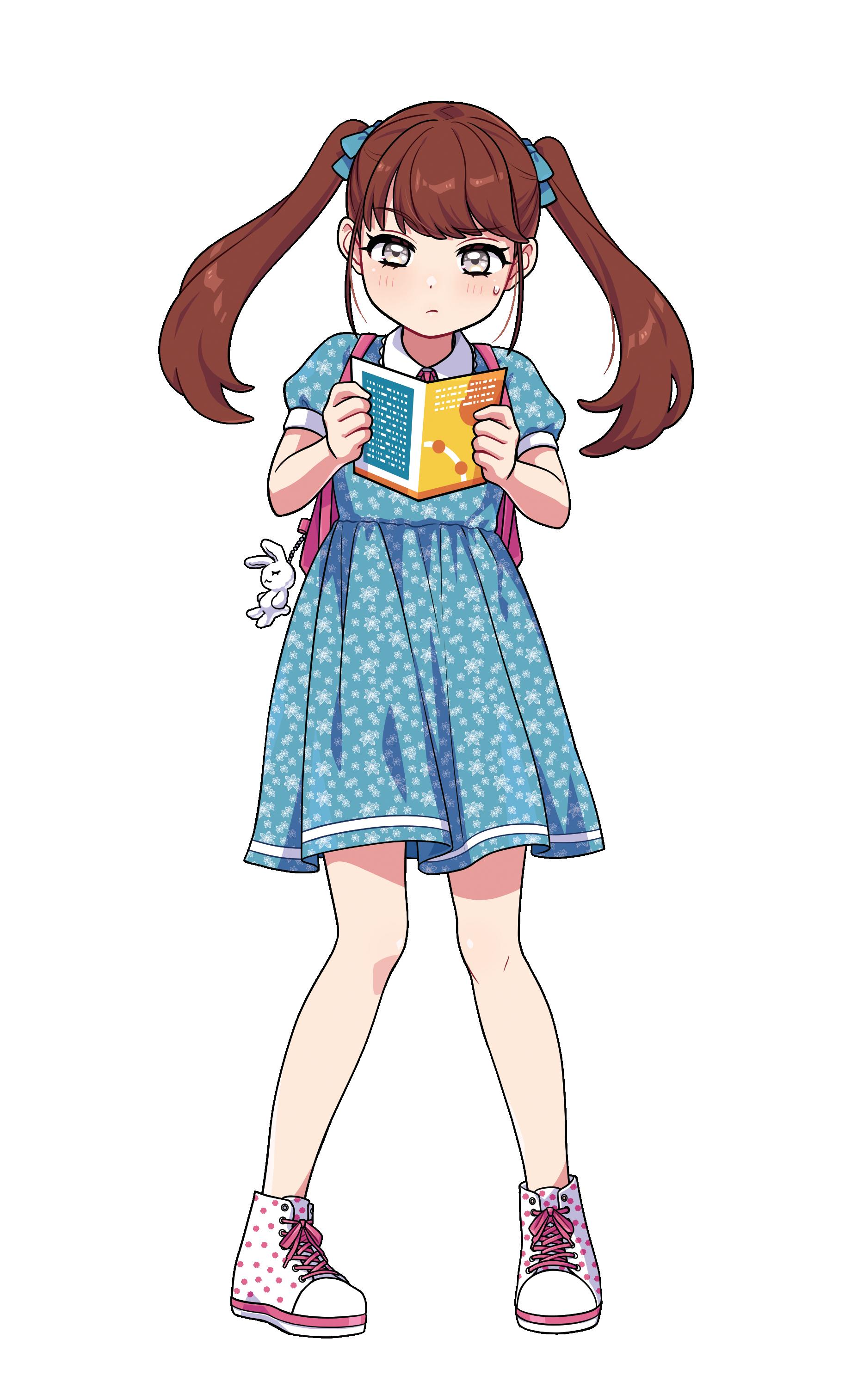
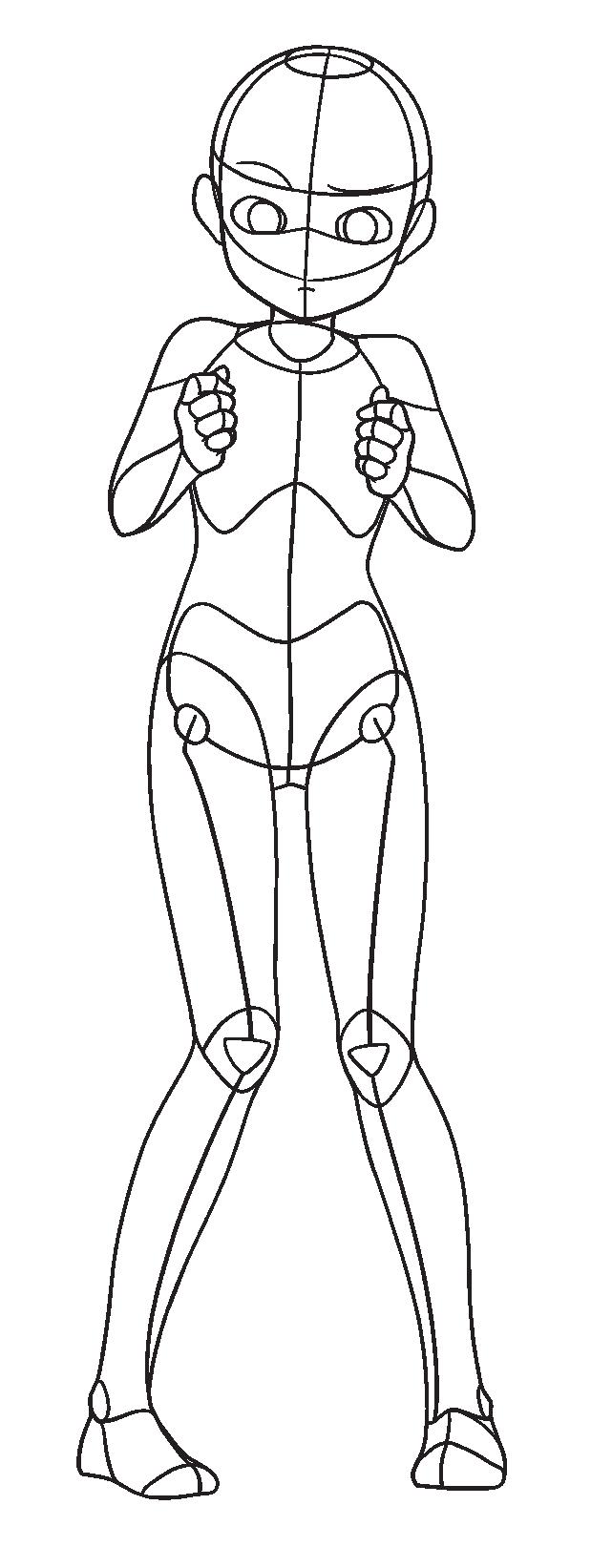
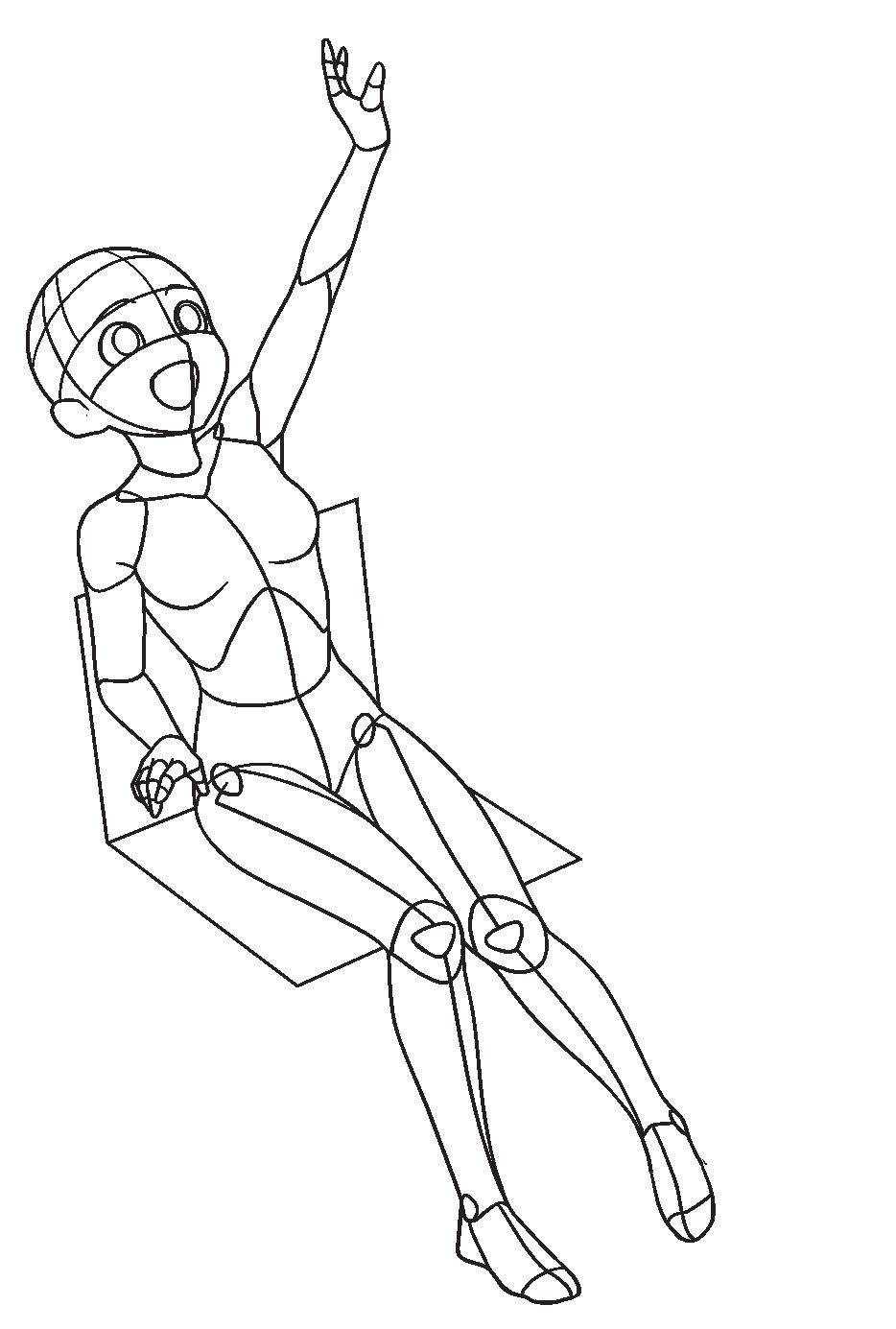
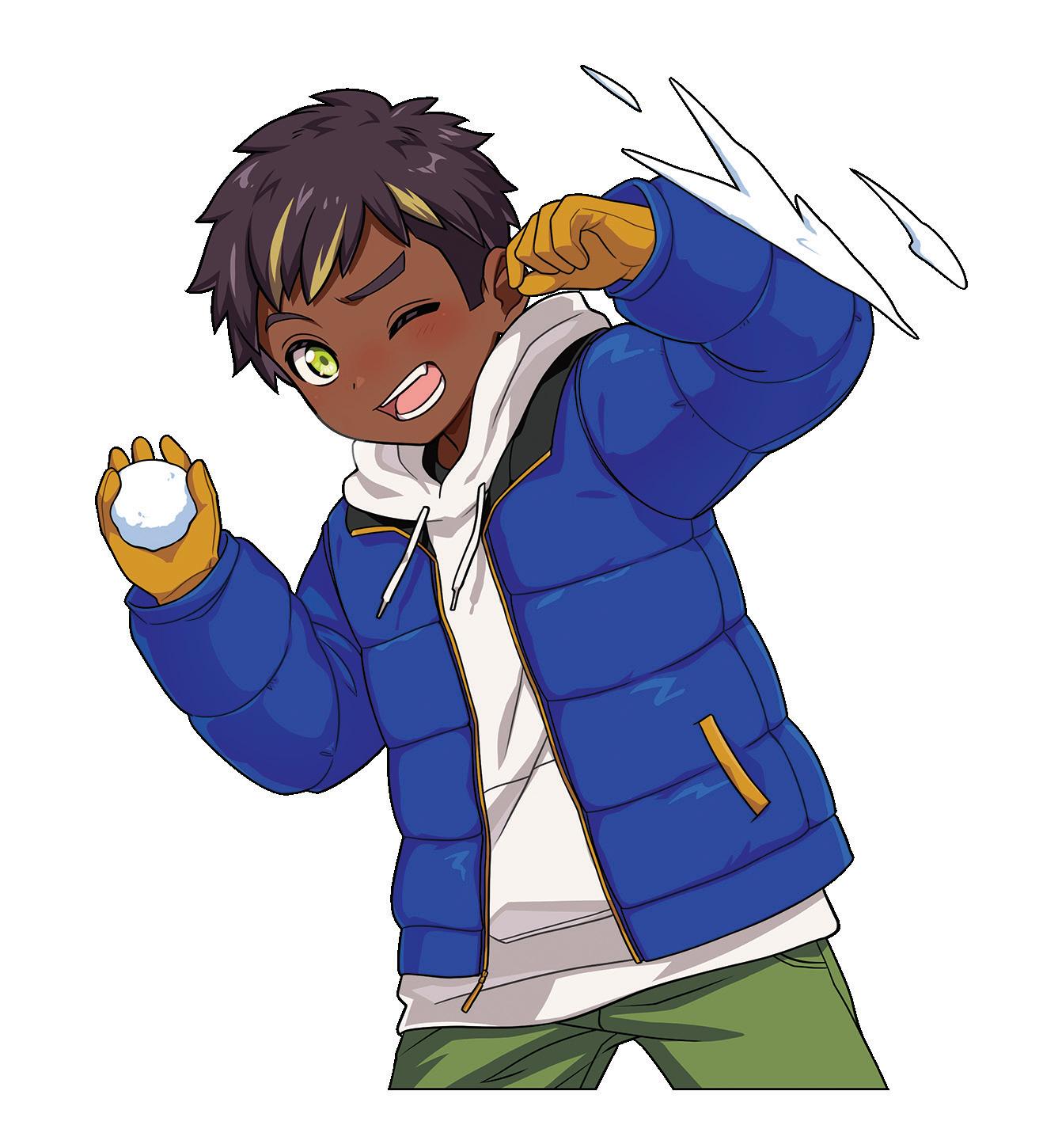

Young teens are very popular character types in manga. They’re smart, determined, silly, and sometimes completely clueless! Because they’re so expressive, young characters are funny and endearing in everyday situations. The first step in the tutorials shows the basic construction—how it’s done. The rest are just a matter of refining it. Let’s create a few humorous situations, and watch the characters react!
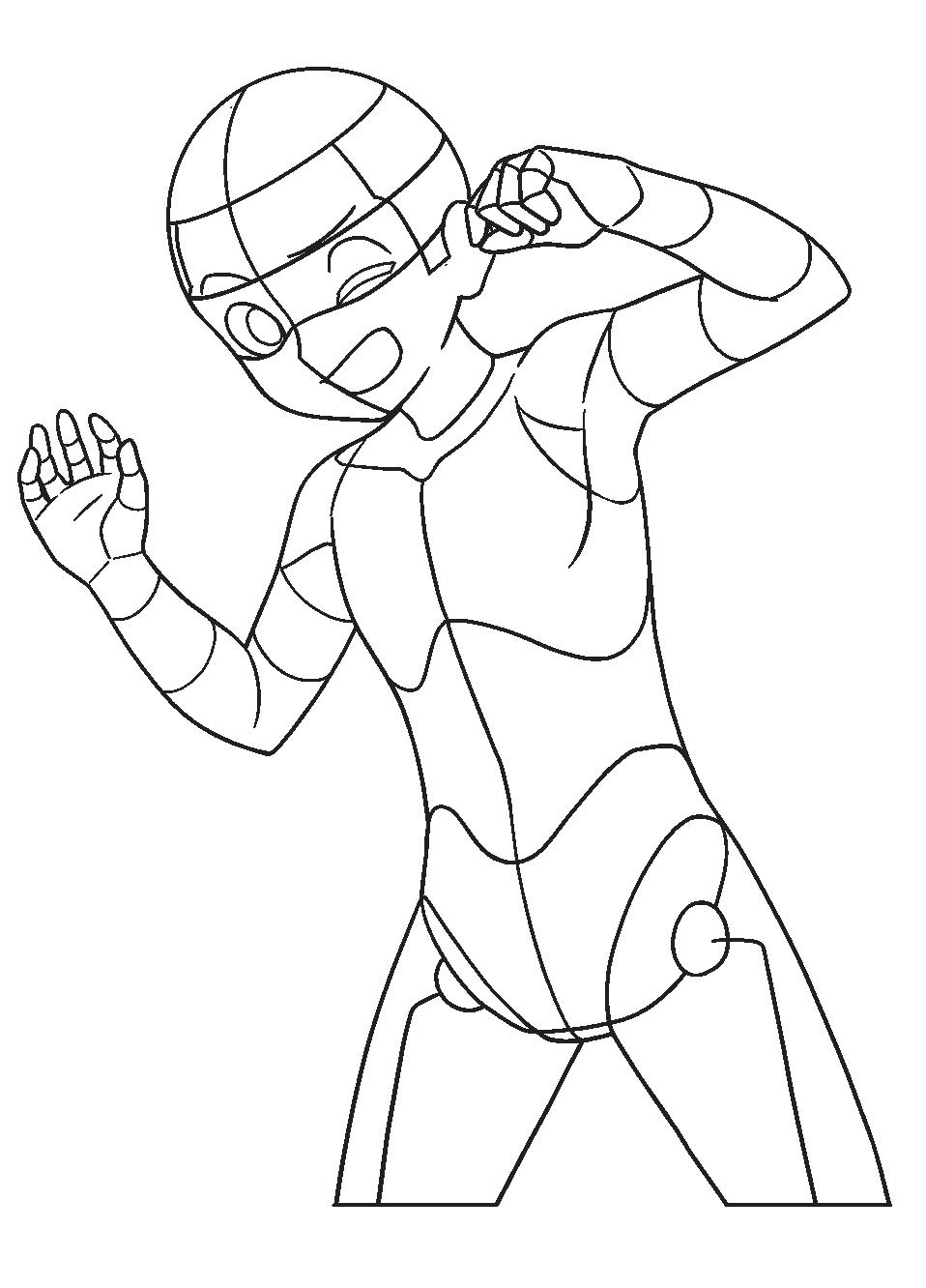


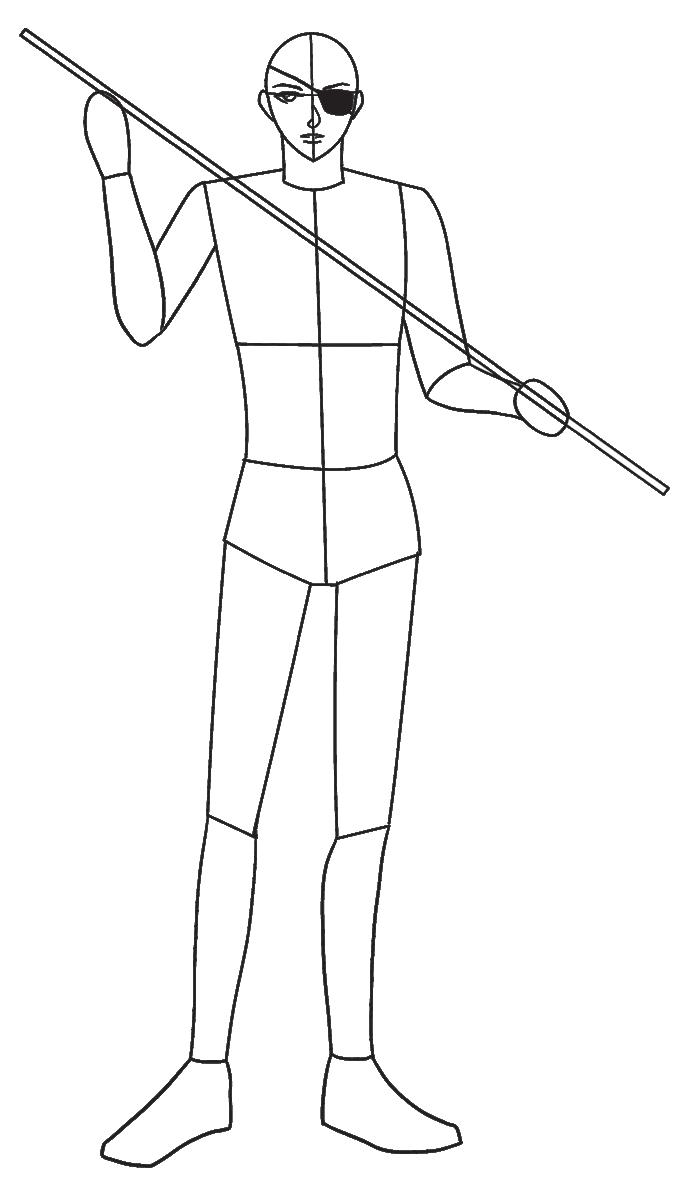
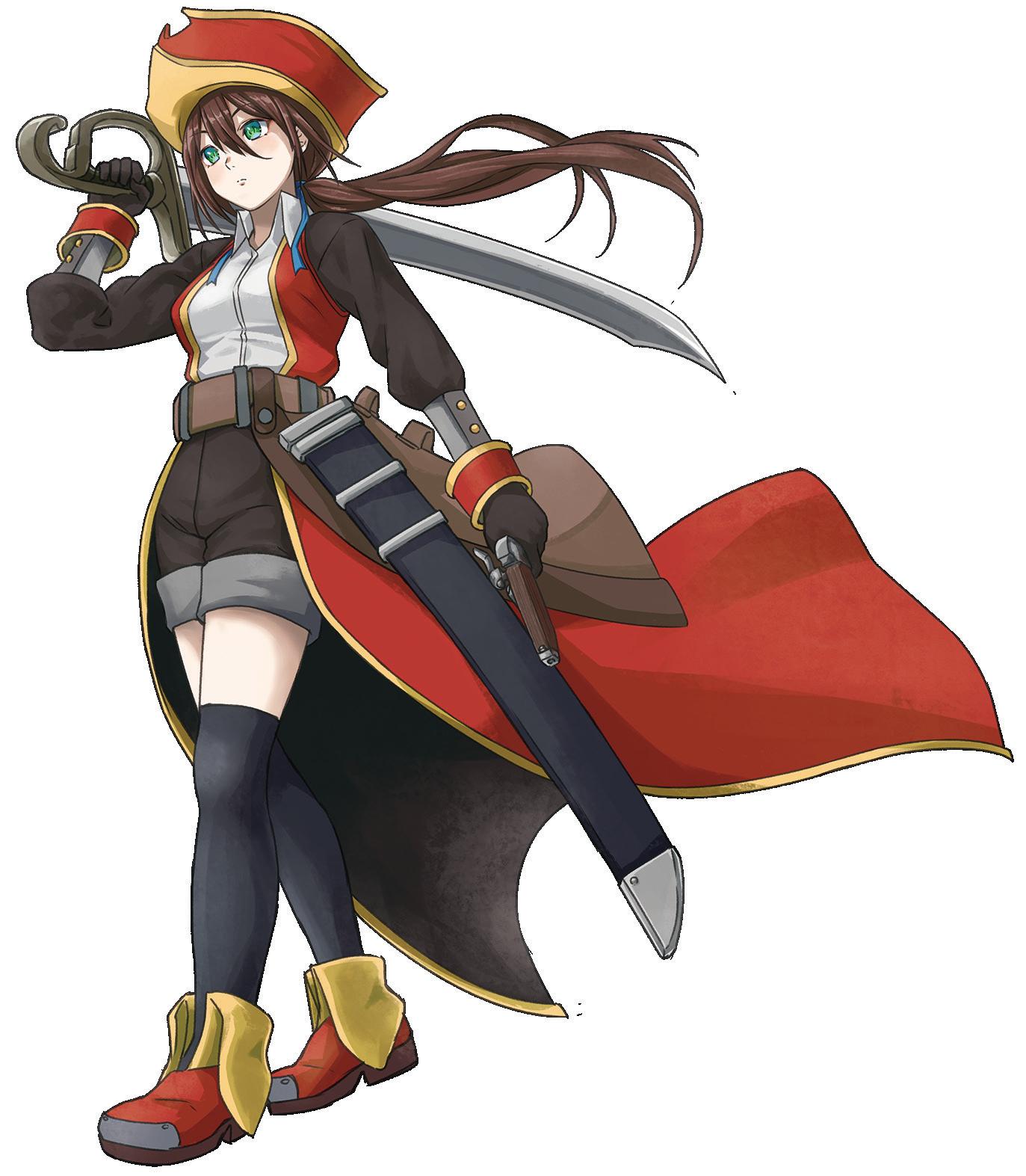
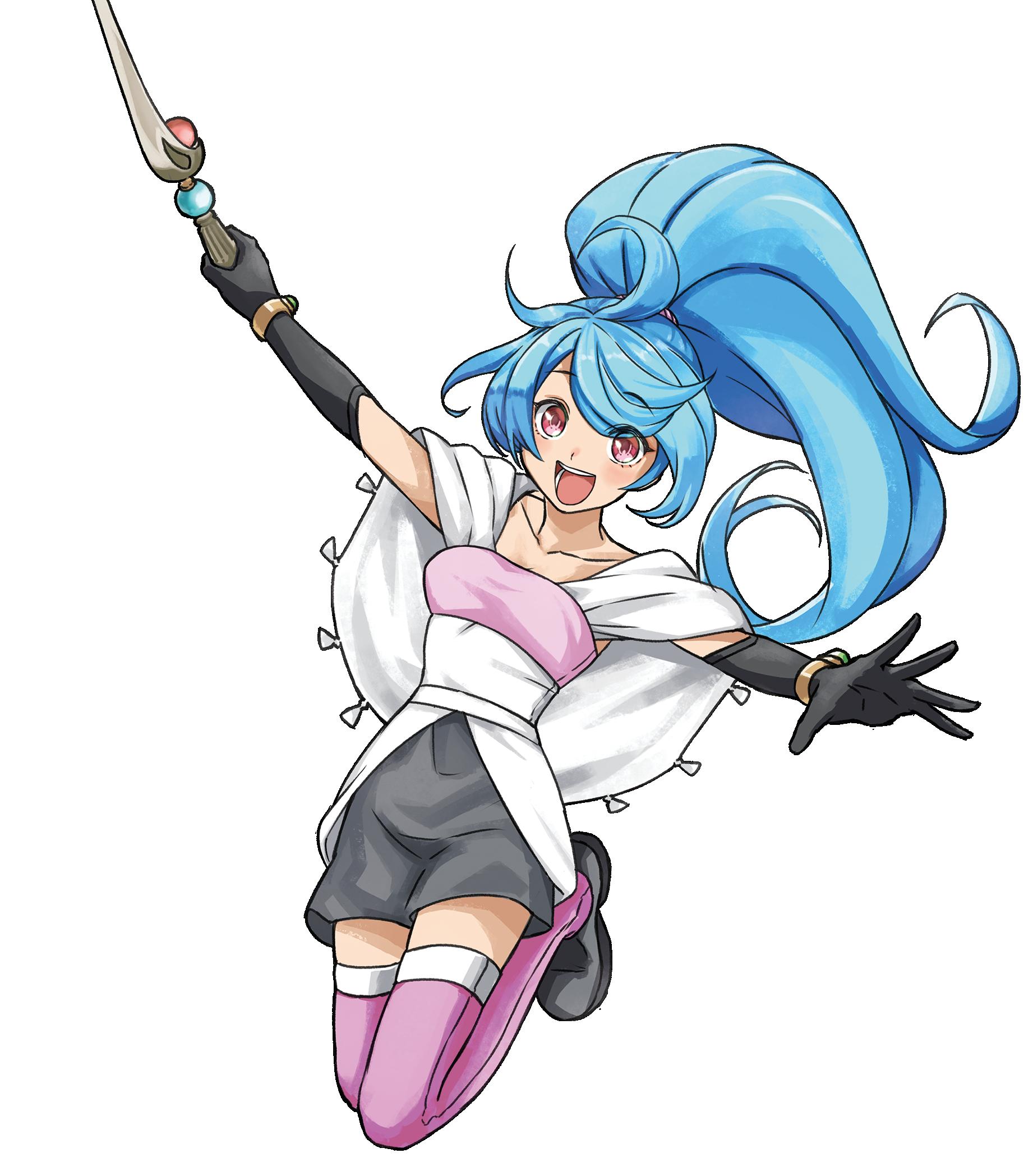




Outfits define the look of a character, who they are and what they do. Fashion and costumes add snap. The look can be adorable, dynamic, contemporary or of a different time (fantasy). A good pose starts off every good fashionable outfit. If the clothes have a joyful look, and the character is joyful, it doubles the cheerfulness of the character. You’ll get a wide variety of outfits and characters in this chapter, which can improve your skills and which are just plain fun to draw.

Genies can be good, bad, or mischievous. And you won’t know which until you make a wish. For example, the lamp’s owner might wish for a limousine to take him and his date to the prom. But what he gets is a limousine that was spit out of a car crusher. Oooh, not such a nice genie. Now you’re down to two wishes.
Draw one finger on the side of her face, with a mischievous smile.
Bumpy smoke emanates from the lamp and is transformed into the genie.
Draw jewelry and designs along the lapels of the vest.
The smoke should make a few turns as it gets smaller and closer to the lamp.
Swirling hair (You can also make up your own hairstyle, for example, a superlong ponytail.)

Draw a loose vest in front of and in back of her torso.


The indication of legs is for placement only.

Genies are like magical friends who love to pull pranks on their owners. If you come across a lamp on the beach, better keep walking!


Kids love playing with him because once he’s finished watering the garden, he becomes soda bunny!


A
action pose 71
angelic character 42
angry character 30
astonishment 138–139
attitude, walking with 76–77 attitudes and moods 38–45
B
ball, playing 106–107
bangs, boy 24
beach, walking on 84–85
bear robot 157
birthday party with friends 136–137
body
boys 50–51, 54–55
girls 49, 52–53
proportions 48
bodyguard 116
bored character 44
boys
body 50–51, 54–55
hairstyles 23–25
head 10–11, 13, 16–17
braids 20
brave character 31
breezy walk 78–79
bride, magical 142–143 bubbles, blowing 153
bunny robot 158–159
C
cat, working out with 88
cat robot 153
character types 26–37
charming pose 62
chasing magical friends 134–135
class, daydreaming in 105
comedian 37
costumes 117–121
crossing guard sheep robot 152
D
daydreaming in class 105
defender and dolls 130–131
delivery mouse robot 155
dog and ice cream cone 108–109
doorman 140–141
dragon hunter 128–129
dynamic posing 71
enforcer uniform 116
F
fashions 110–121
fearless pose 56–57
females. see girls fighter 124–125
fish in aquarium, feeding 95 foundation pose 66 free spirit character 32
frozen pose 70
G genie 144–145
gesture pose 72–73
girls
body 49, 52–53
hairstyles 18–22
head 8–9, 12, 14–15
goat robot 151 grudge-holder 43
H
hairstyles boys 23–25 girls 18–22
Harajuku fashion 114 head
boys 10–11, 13, 16–17
girls 8–9, 12, 14–15
hedge-copter robot 156
homework on subway 96–97
hopeful pose 94
I
ice cream cone and dog 108–109
inspired character 41
K knight 118–119
L
laid-back character 35 leggings, jazzy 112–113
locker, closing 90–91 lost in the city 100–101
M
magical characters 122–147
males. see boys
middle school characters 98–109
mini golf 157
moods and attitudes 38–45

mouse robot 155
music lesson 89
P
pet robots 148–159
phone, chatting on 102–103
piano lesson 89
pirate 120–121
ponytail 18
poser character 65
poses
basics 60–73
intermediate 86–97 practice 56–59
precious character 64
prince of the forest 132–133
proportions, body 48
protective character 36
R
rain, walking in 82–83 robots, pet 148–159
running 80–81
S sheepish character 34
sheep robot 152
sincere character 29
sitting poses 92–93
snickering 40
snowball fight 104
solitary pose 67
spontaneous pose 68
squid robot 154
standing pose, natural 69
stressed-out character 33
stubborn character 45
subway, doing homework on 96–97
sweater top and jeans 115
sword fighter and mascot 58–59
T
trusting pose 63
U uniform 116
upbeat character 28
V
visitor, mysterious 146–147
W
walking with attitude 76–77 on beach 84–85
breezy 78–79 in rain 82–83
warrior 117
water bunny robot 158–159
wheelchair 106–107
wishing on star 94
working out with cat 88
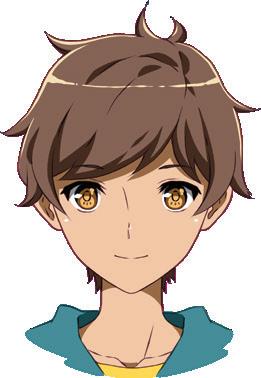
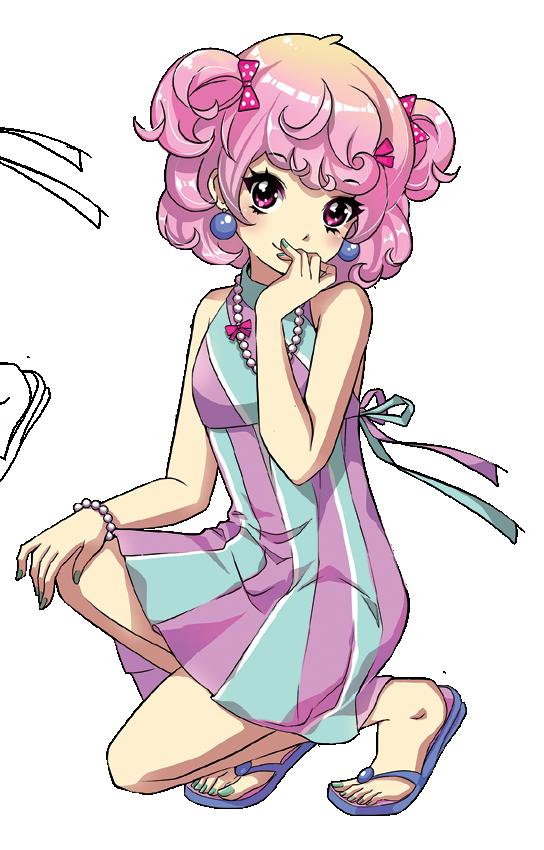

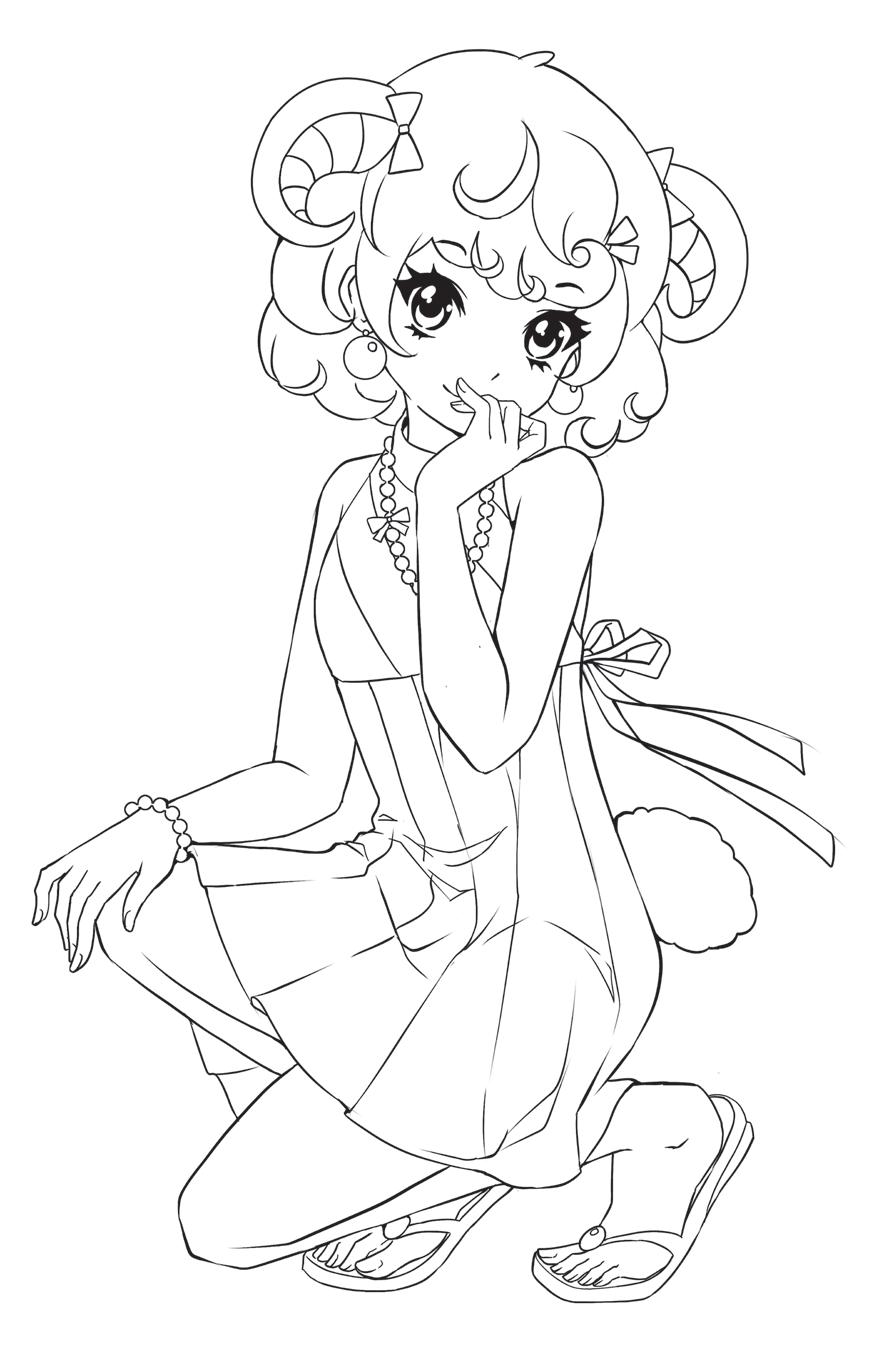
You can always count on finding cute characters in manga, but in The Cute Collection, you can count on finding one hundred of them! This is the ultimate guide for learning to draw all things adorable in the manga universe, brought to you by best-selling author Christopher Hart. Follow along with easy, step-by-step instructions to create cute character types. You can use these tips to create your own original characters, too. These pages are chock-full of dynamic drawing tutorials for romantic, dramatic, magical, and adventurous manga creations—all with a certain warm-and-fuzzy appeal. Tips on drawing poses, expressions, and clothing are included to round out the charm. So get ready to draw the manga character types that have star power—the enduring fan favorites!
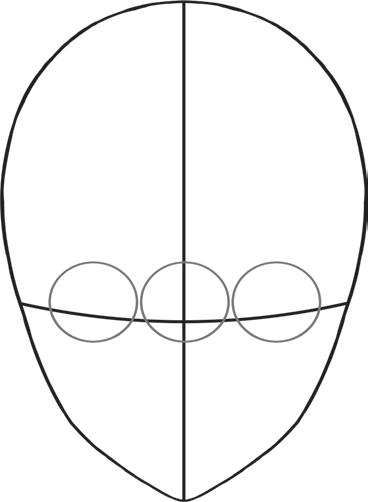
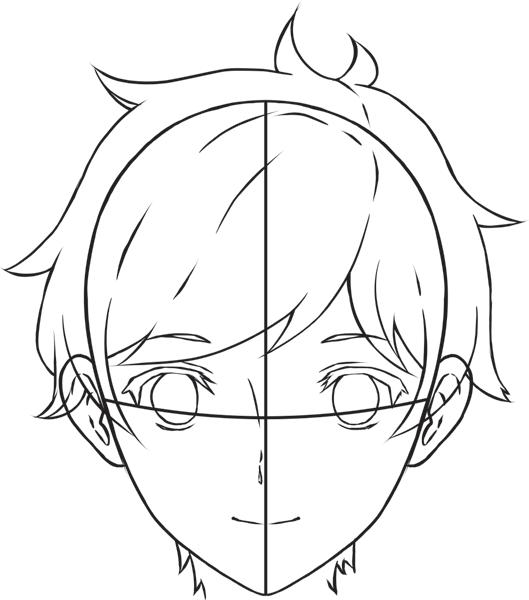
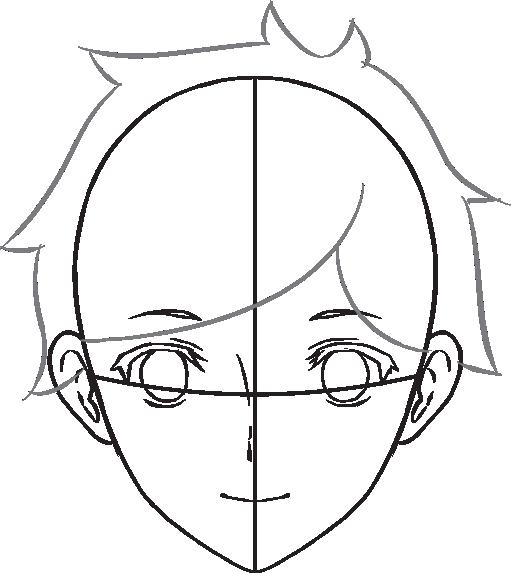
$22.99 US • $29.99 CAN
ISBN: 978-1-68462-067-8
ISBN: 978-1-68462-067-8